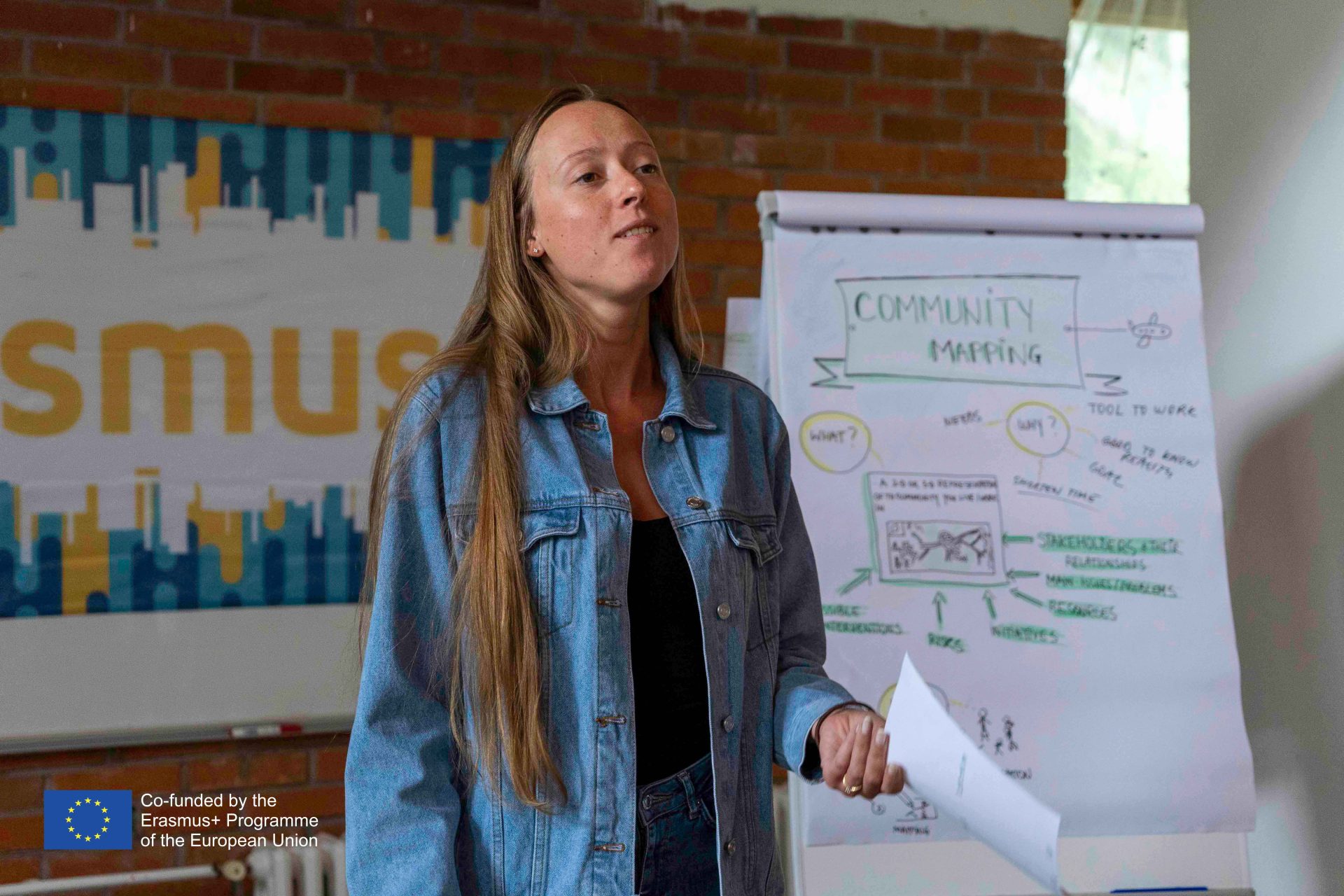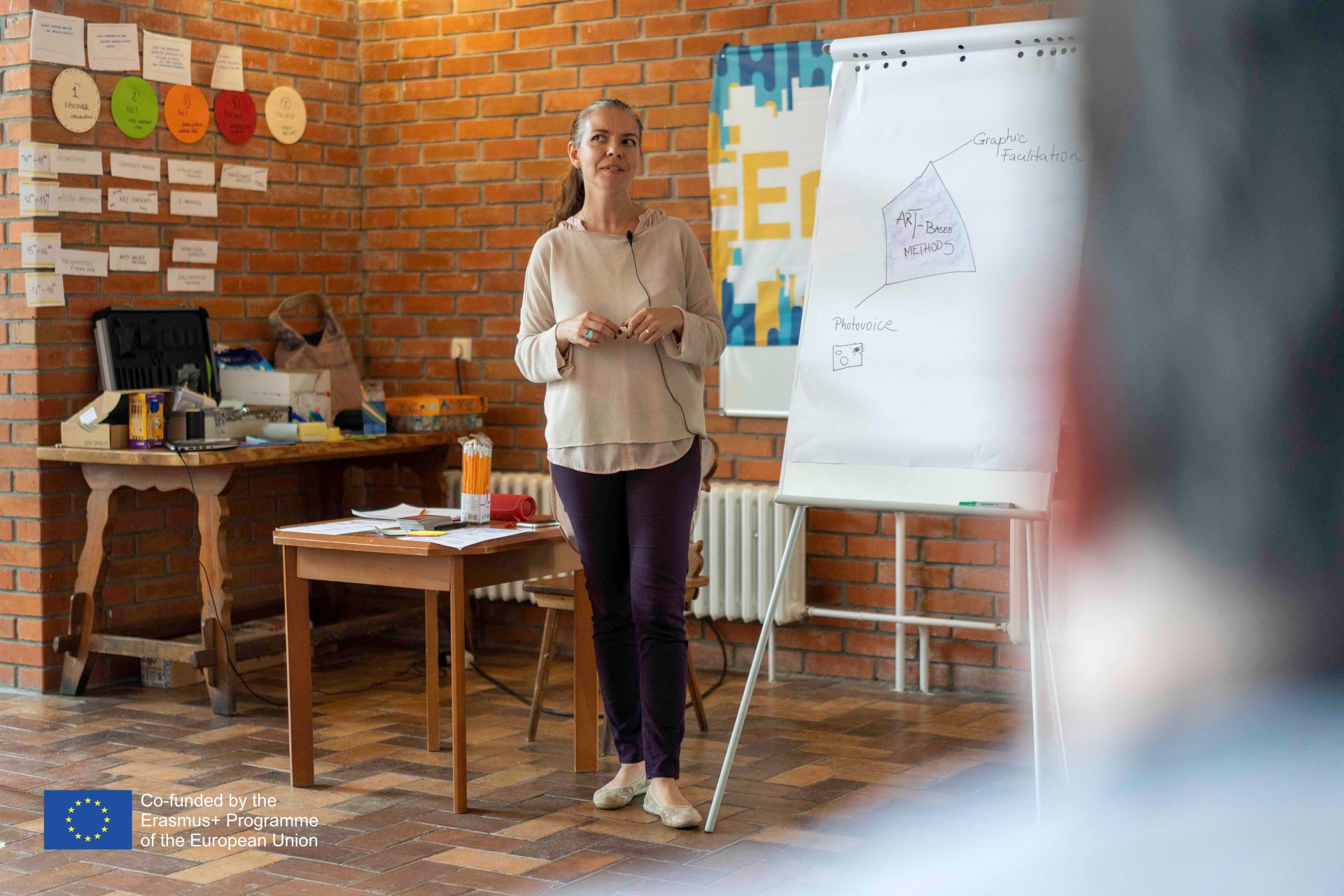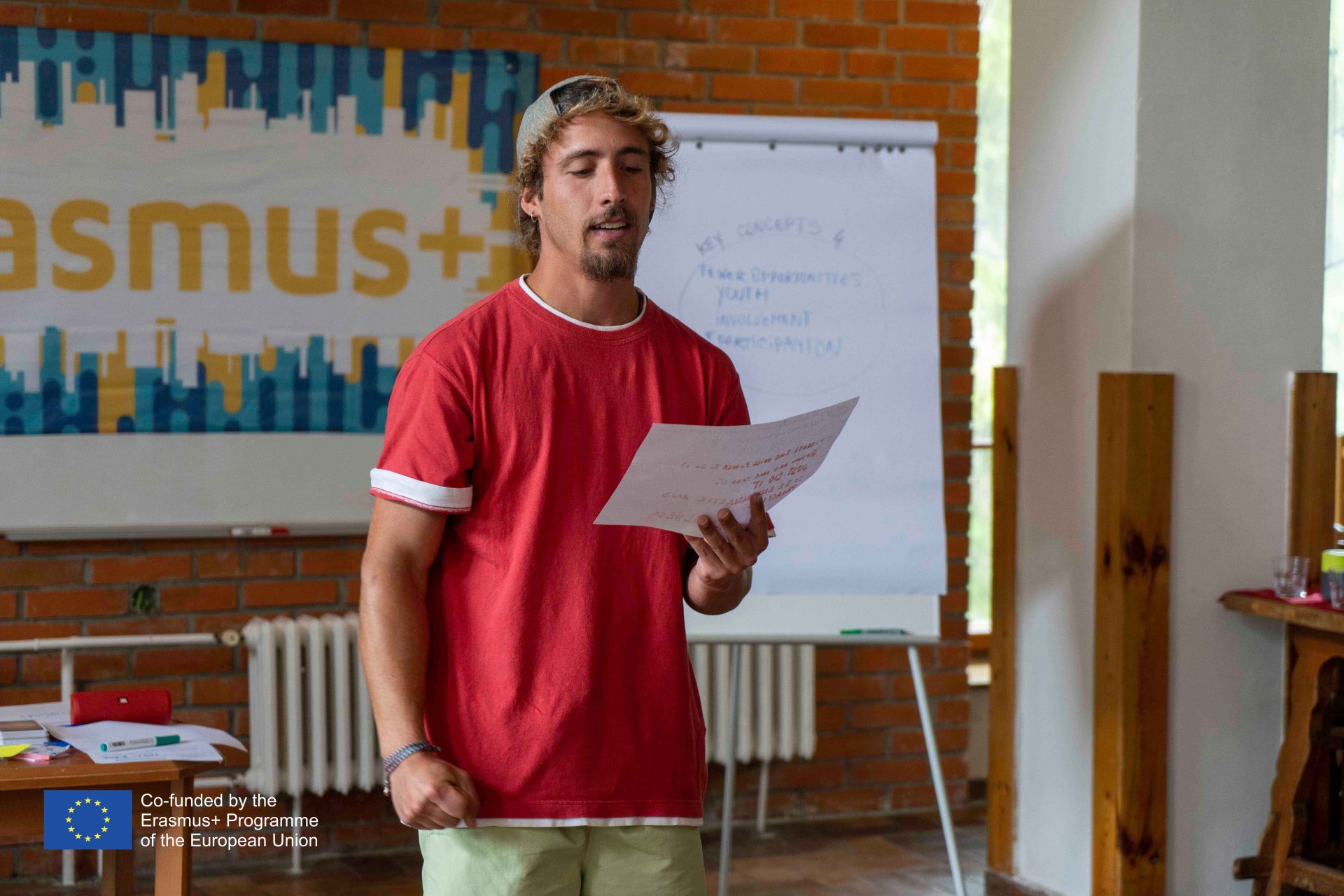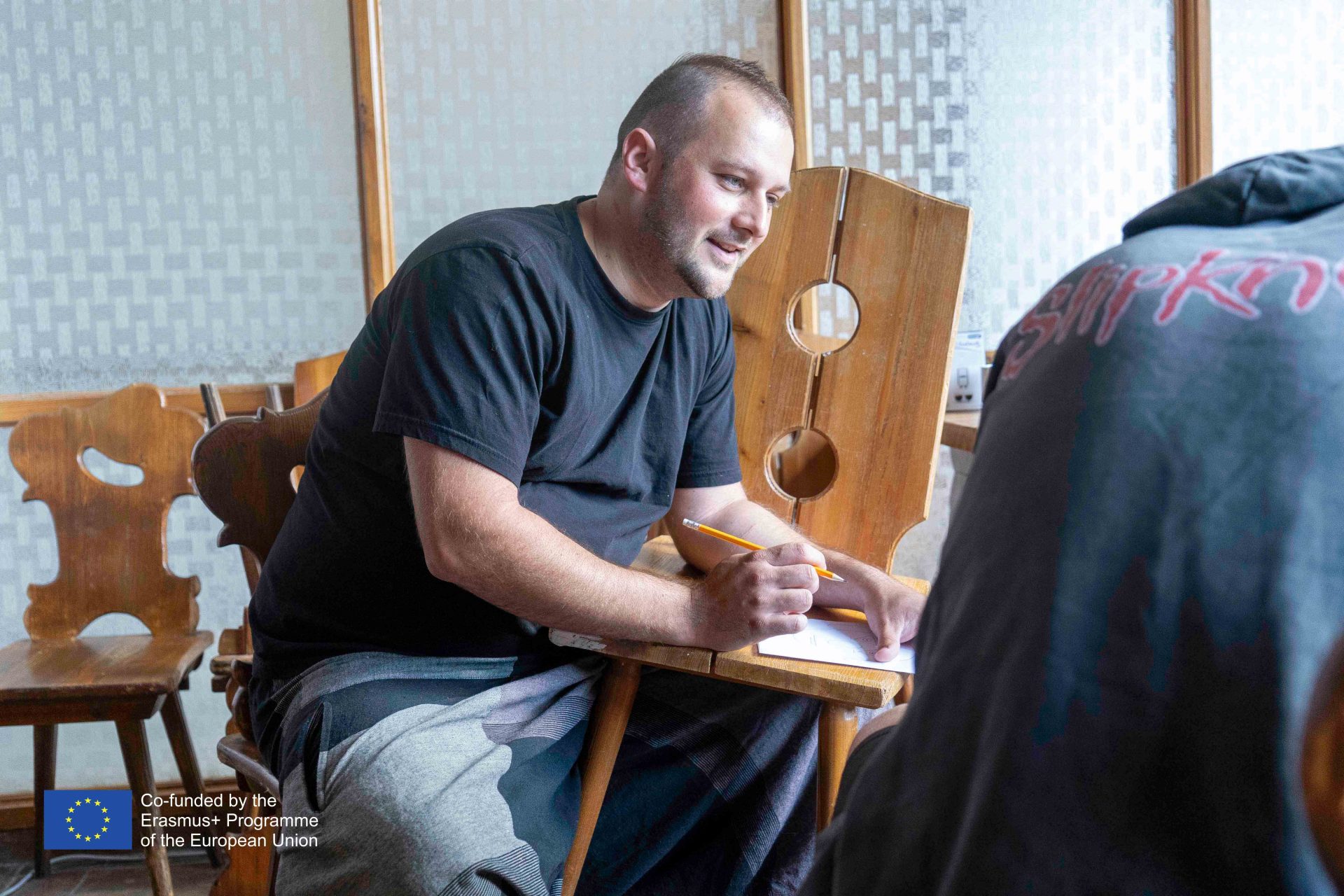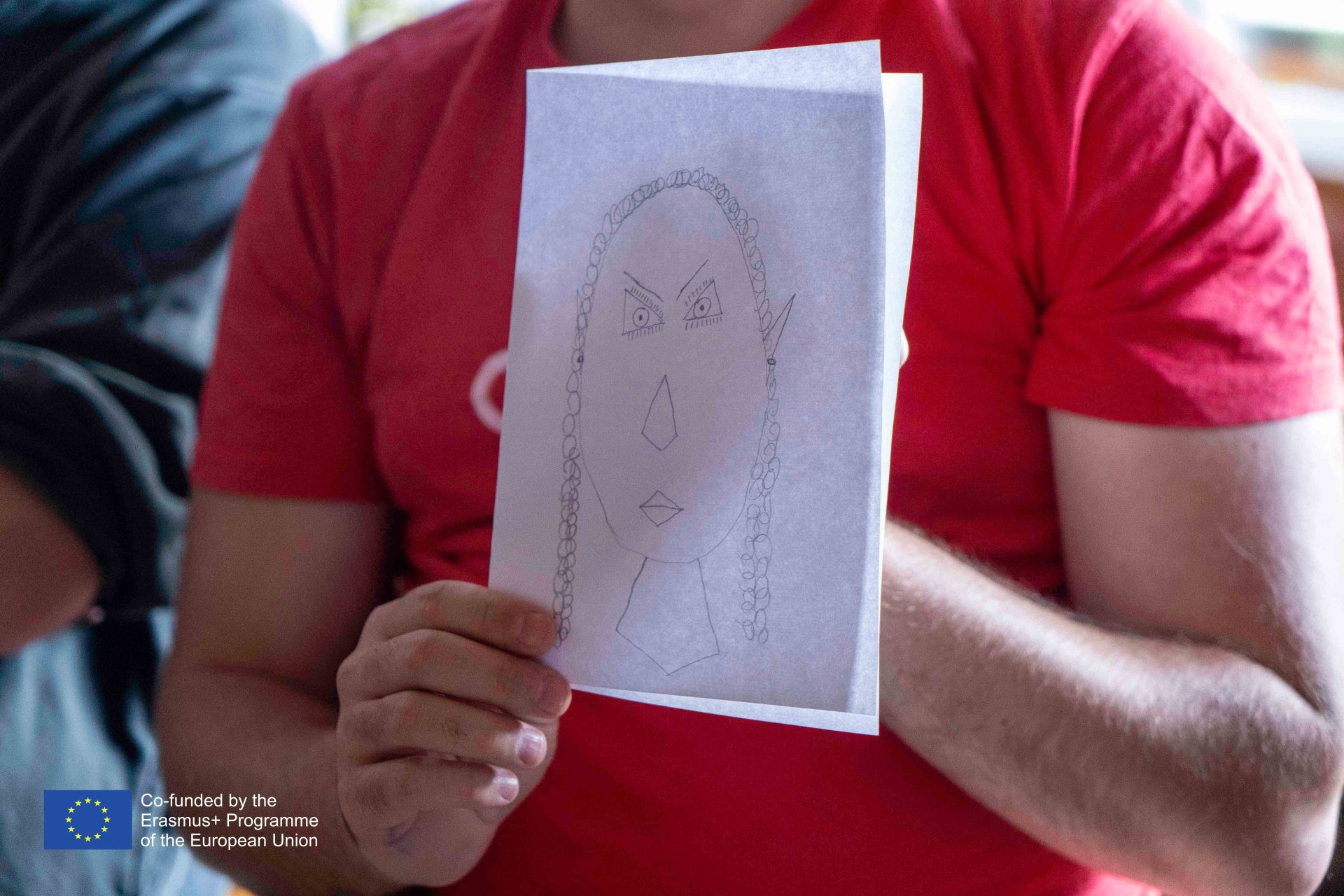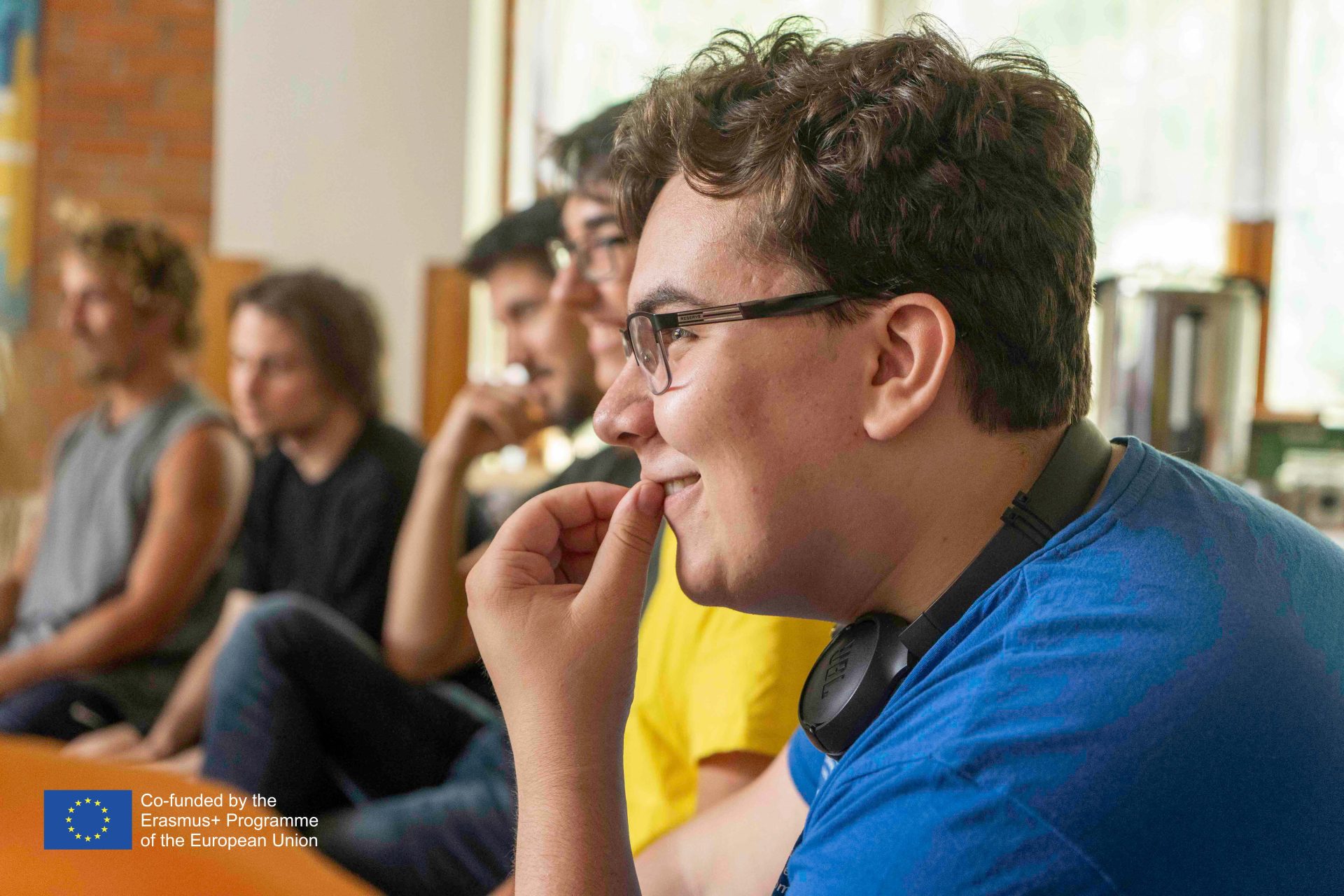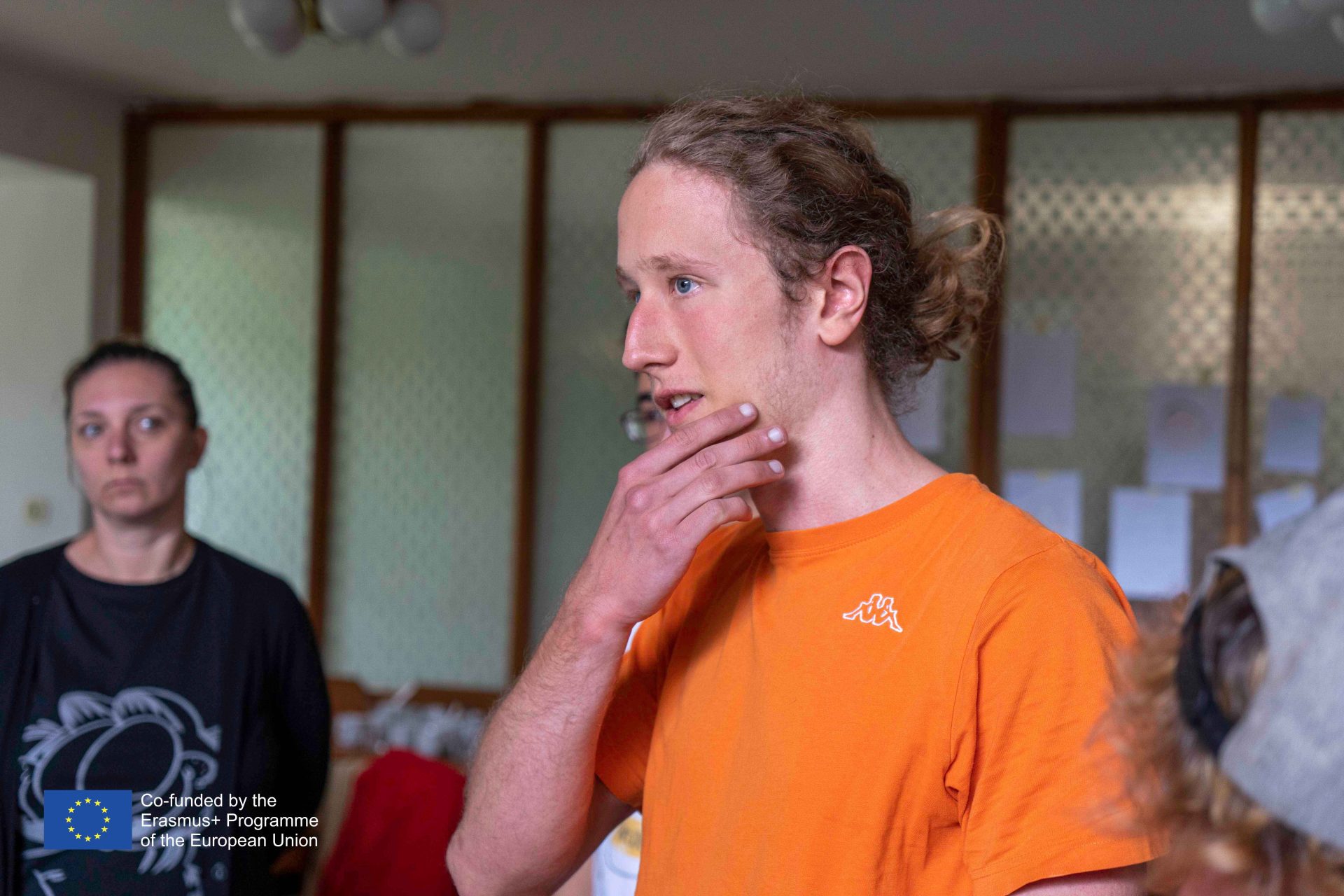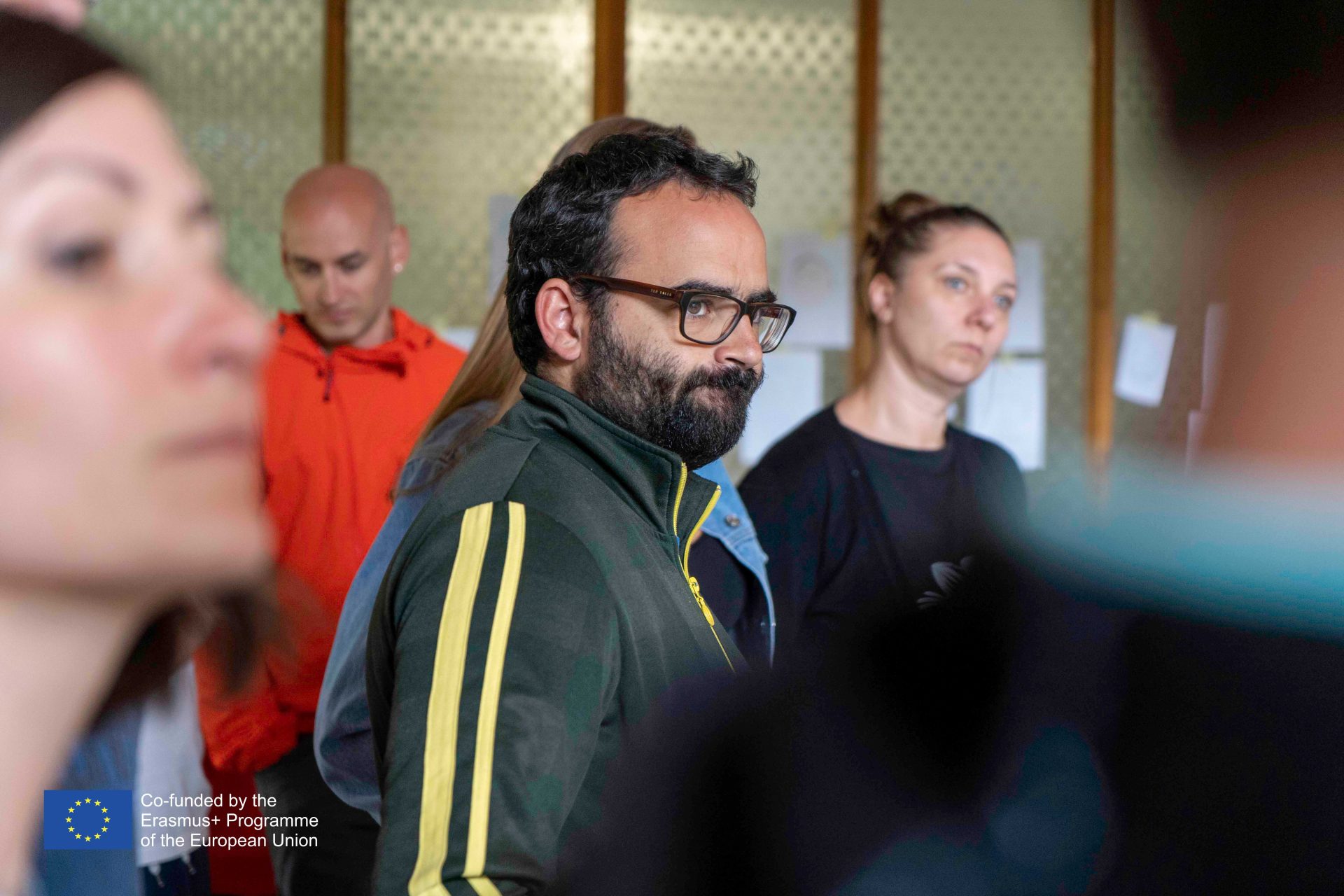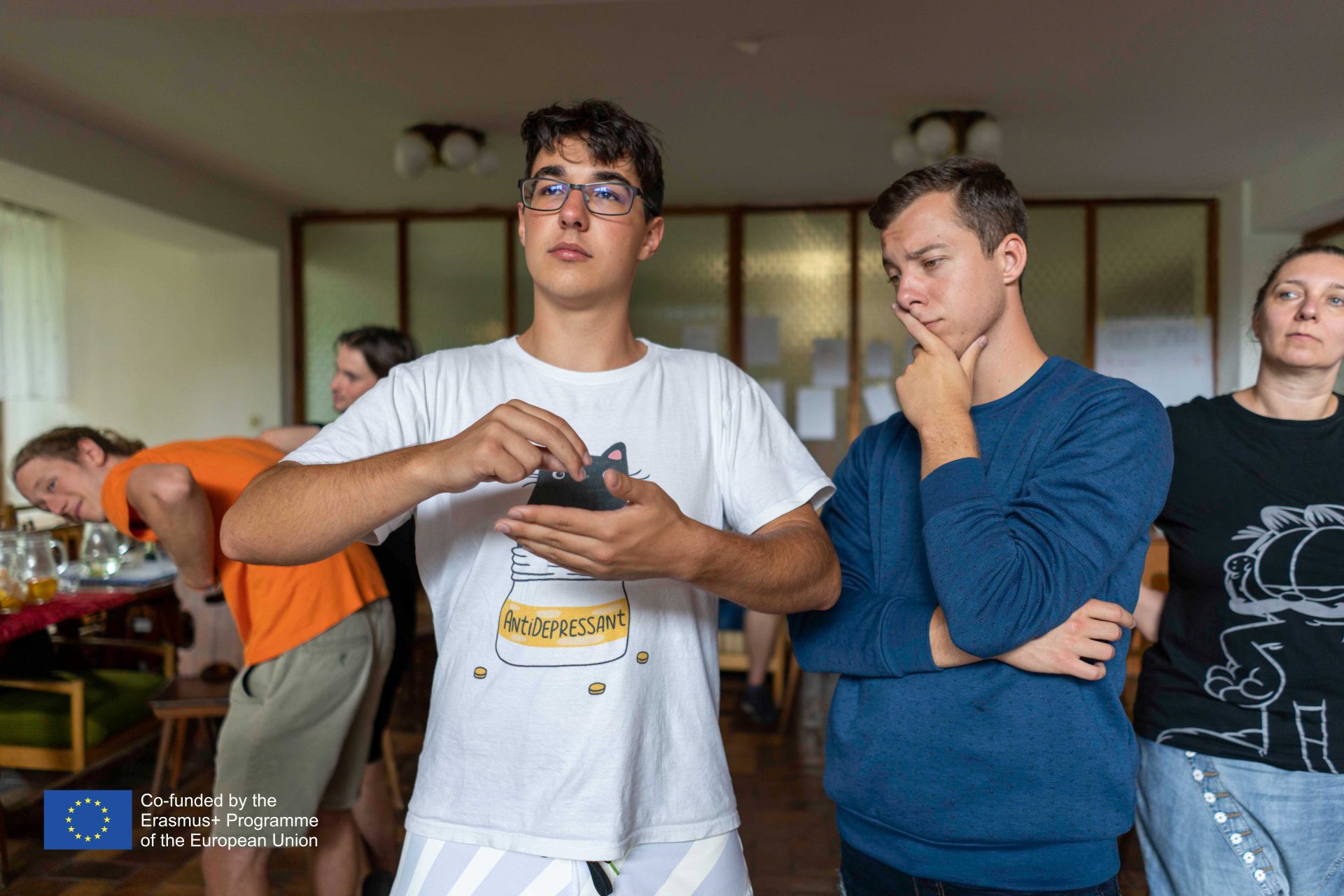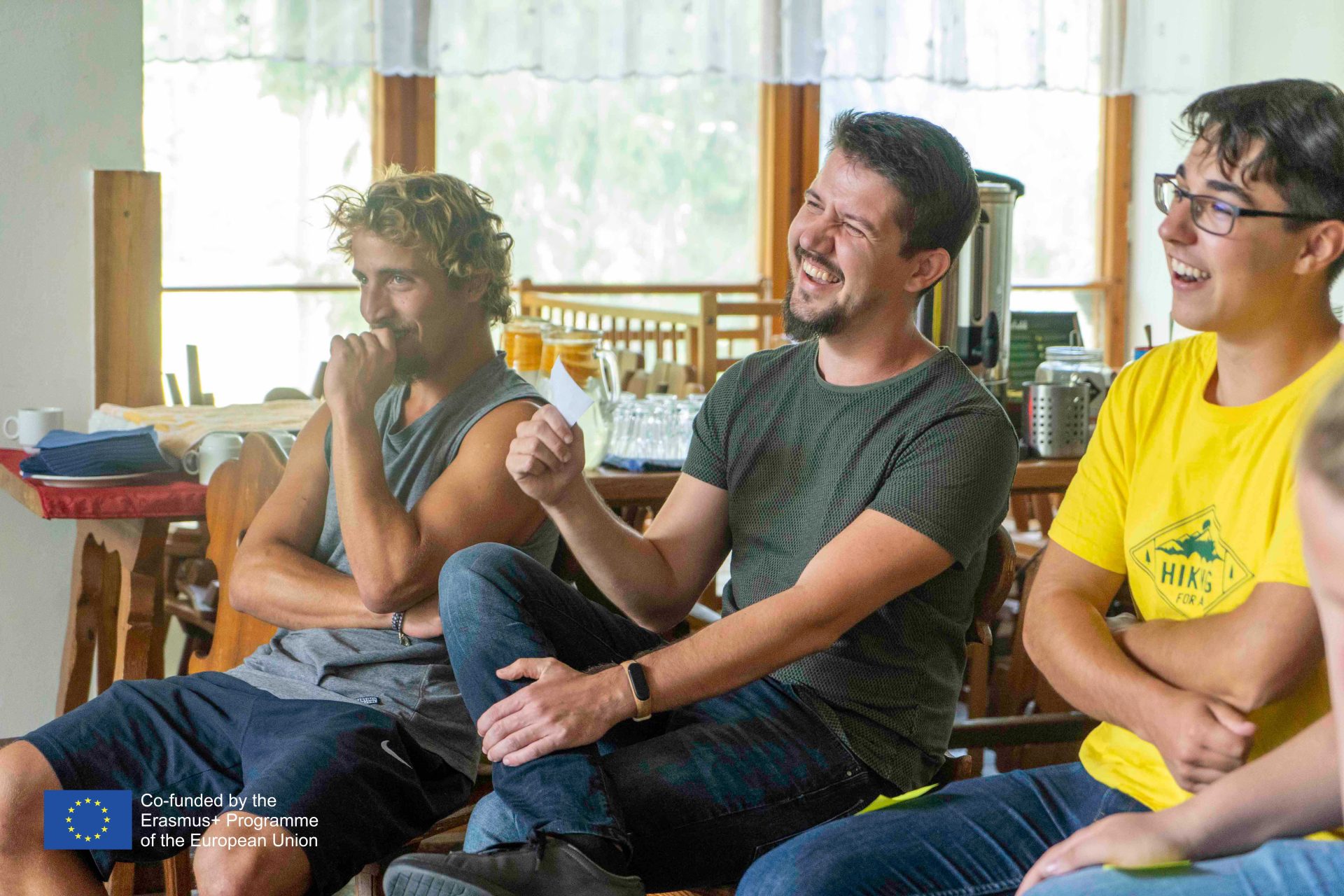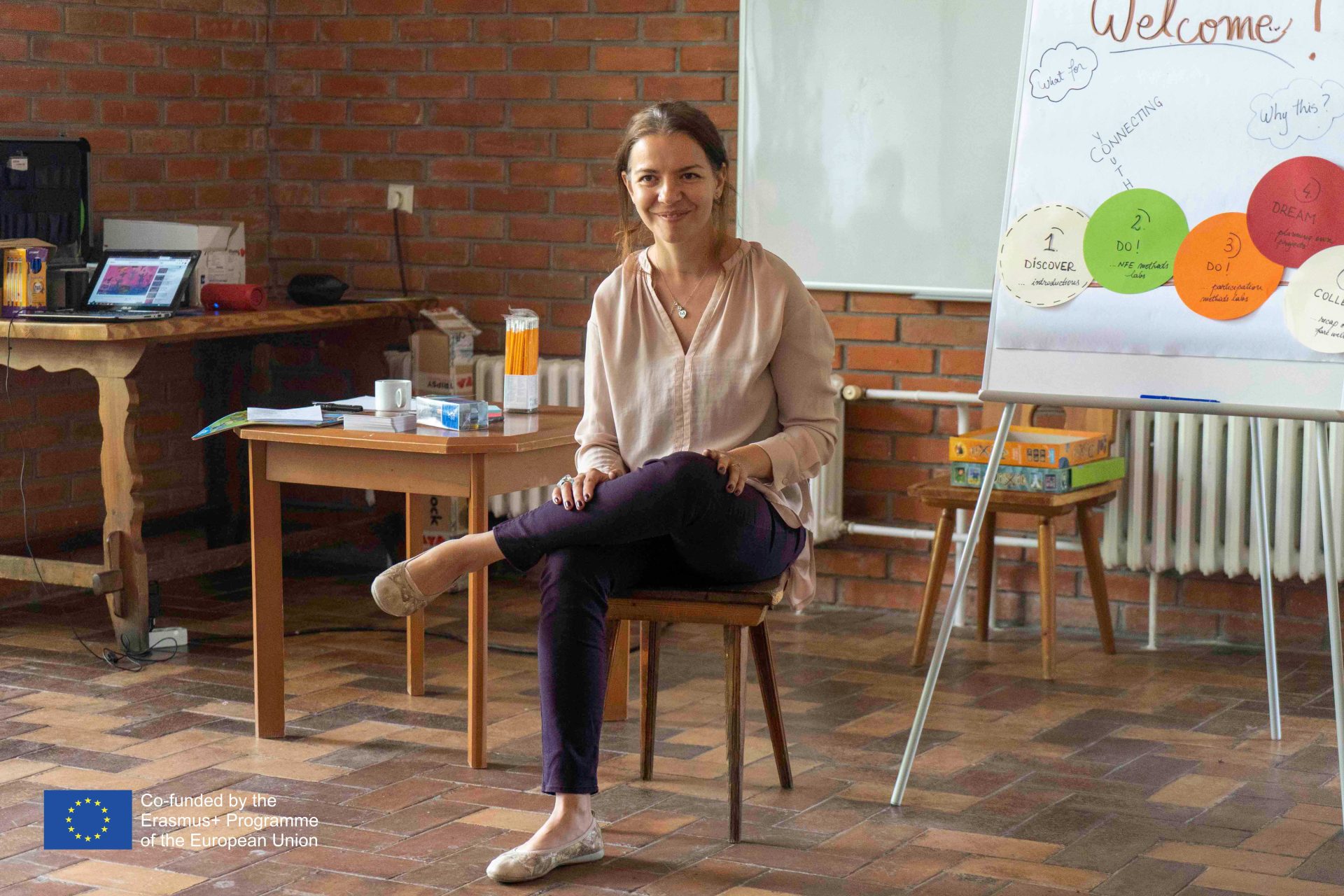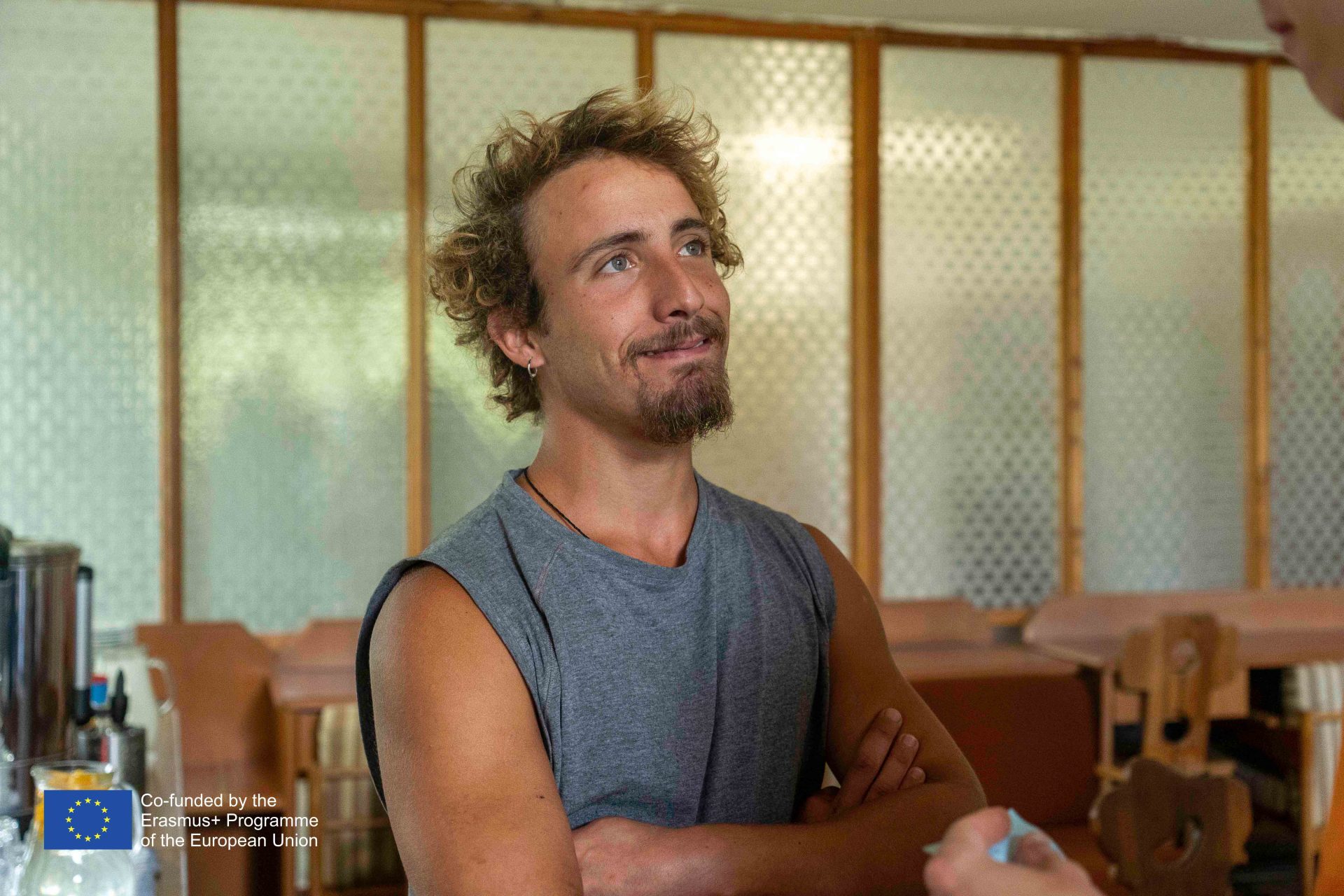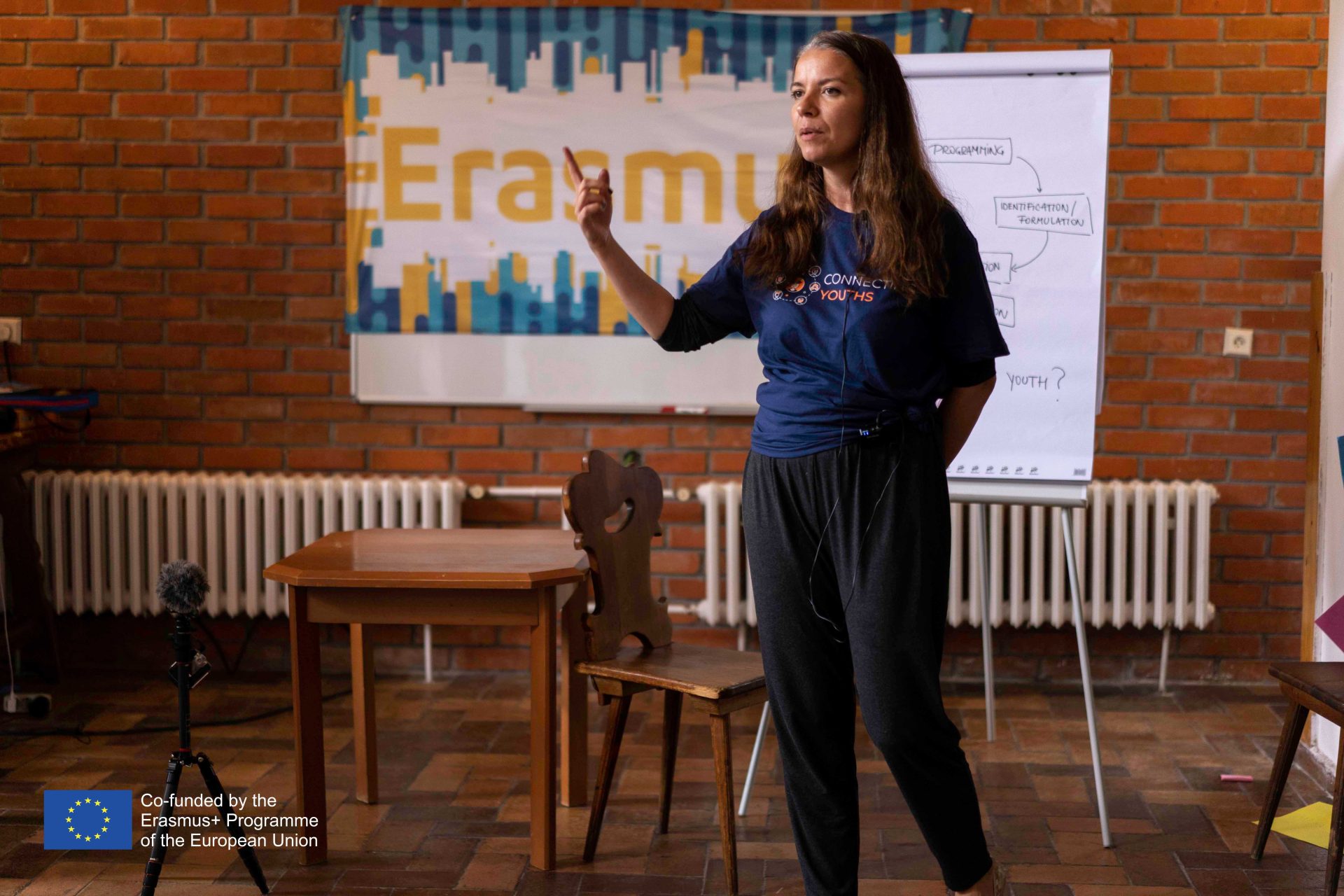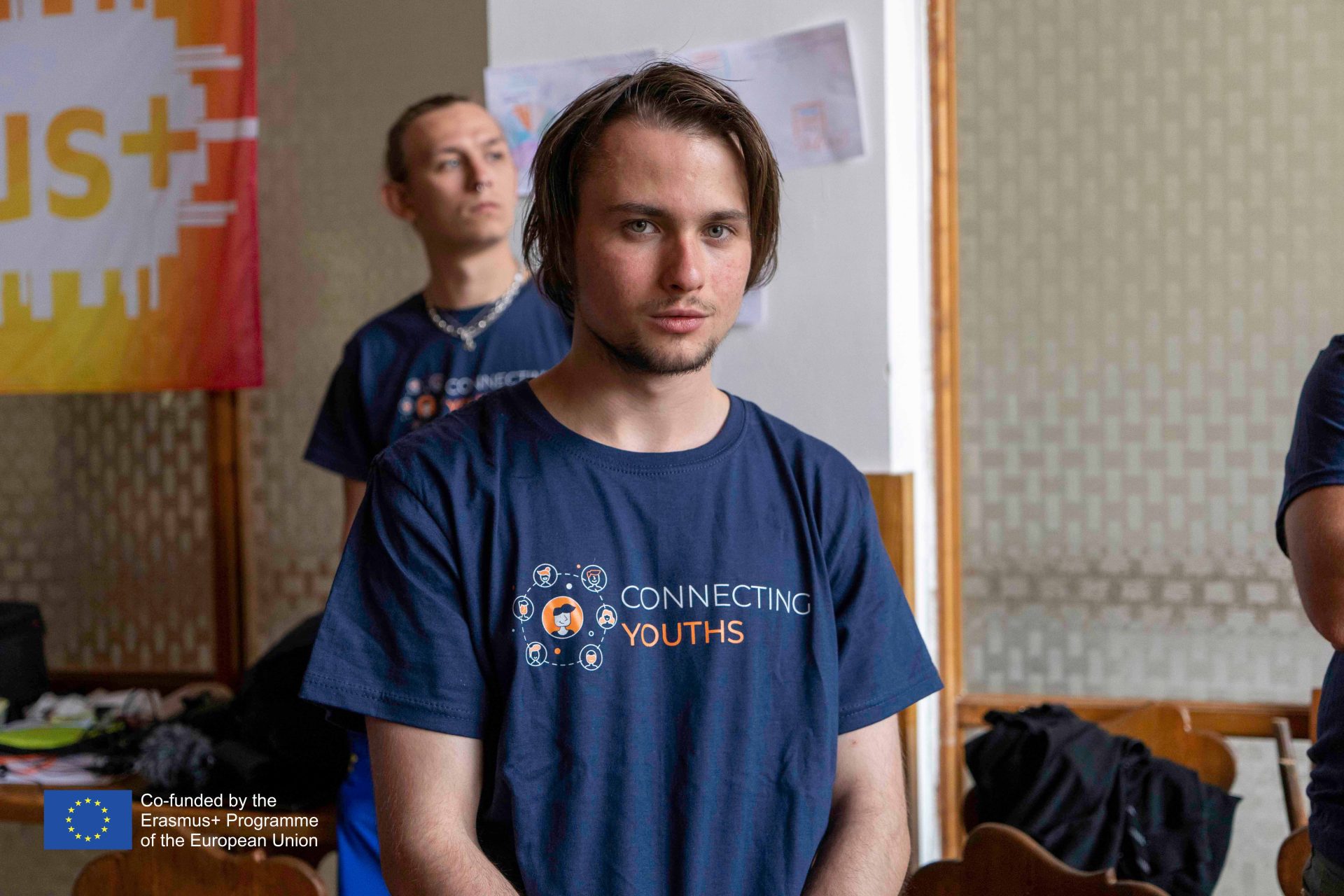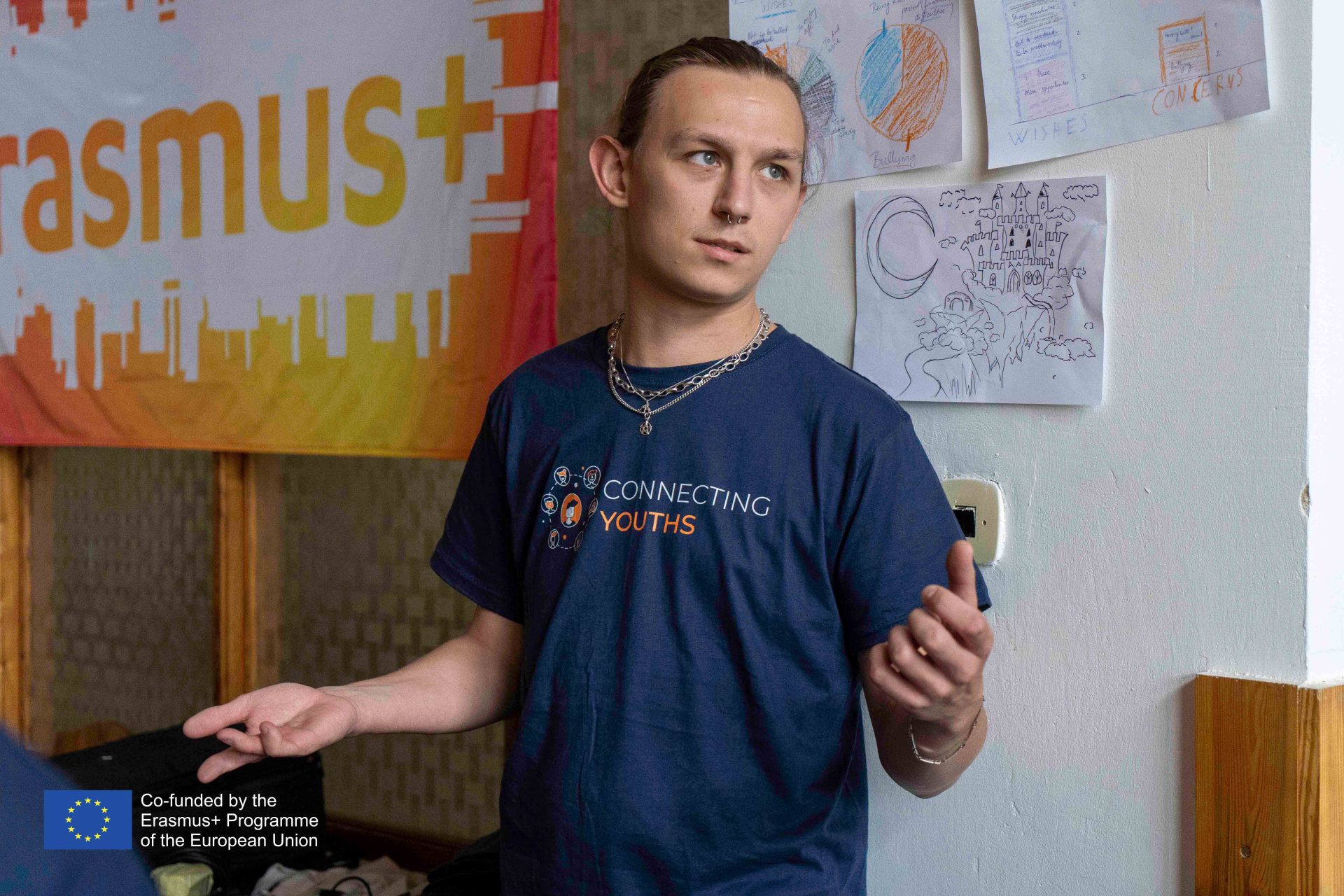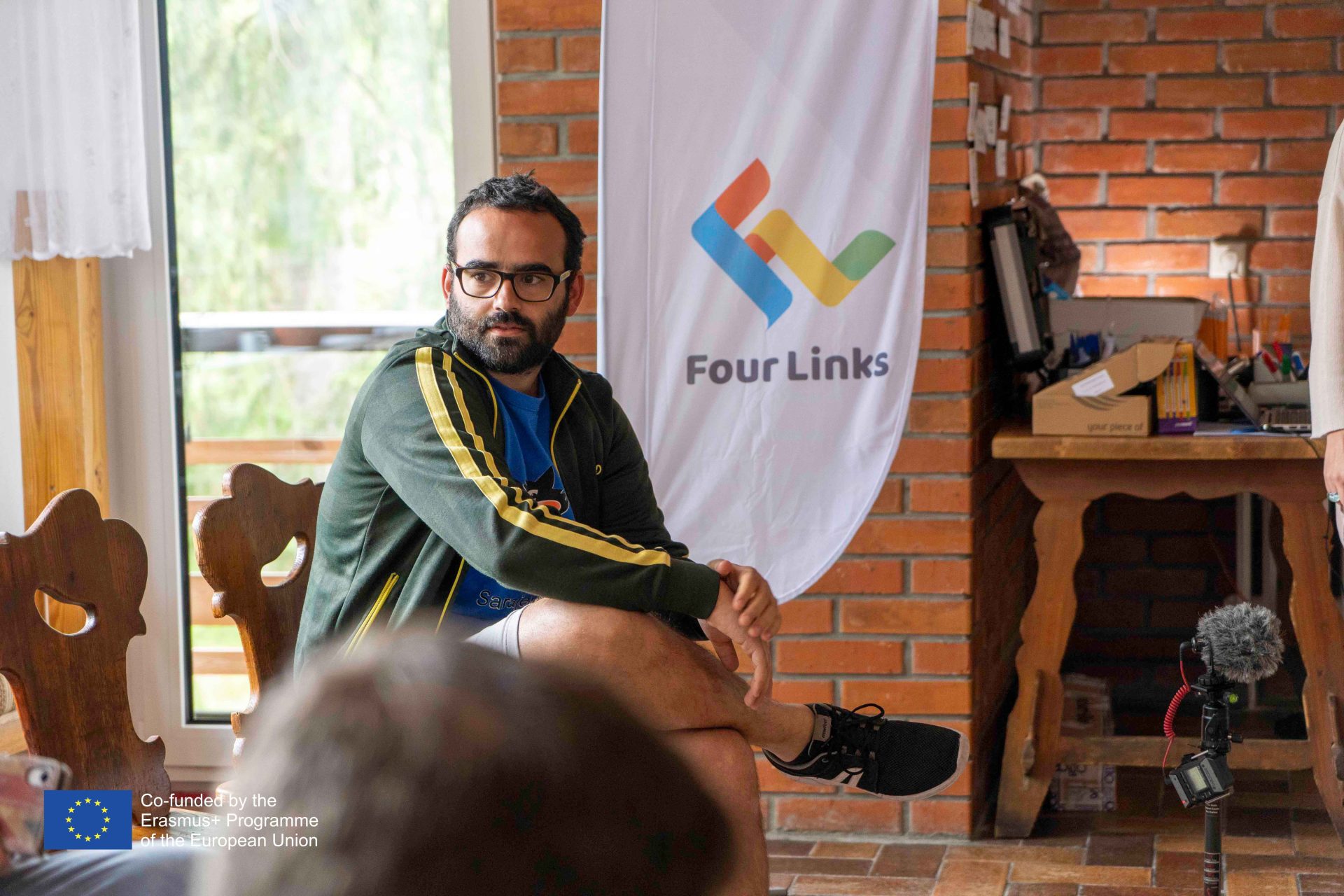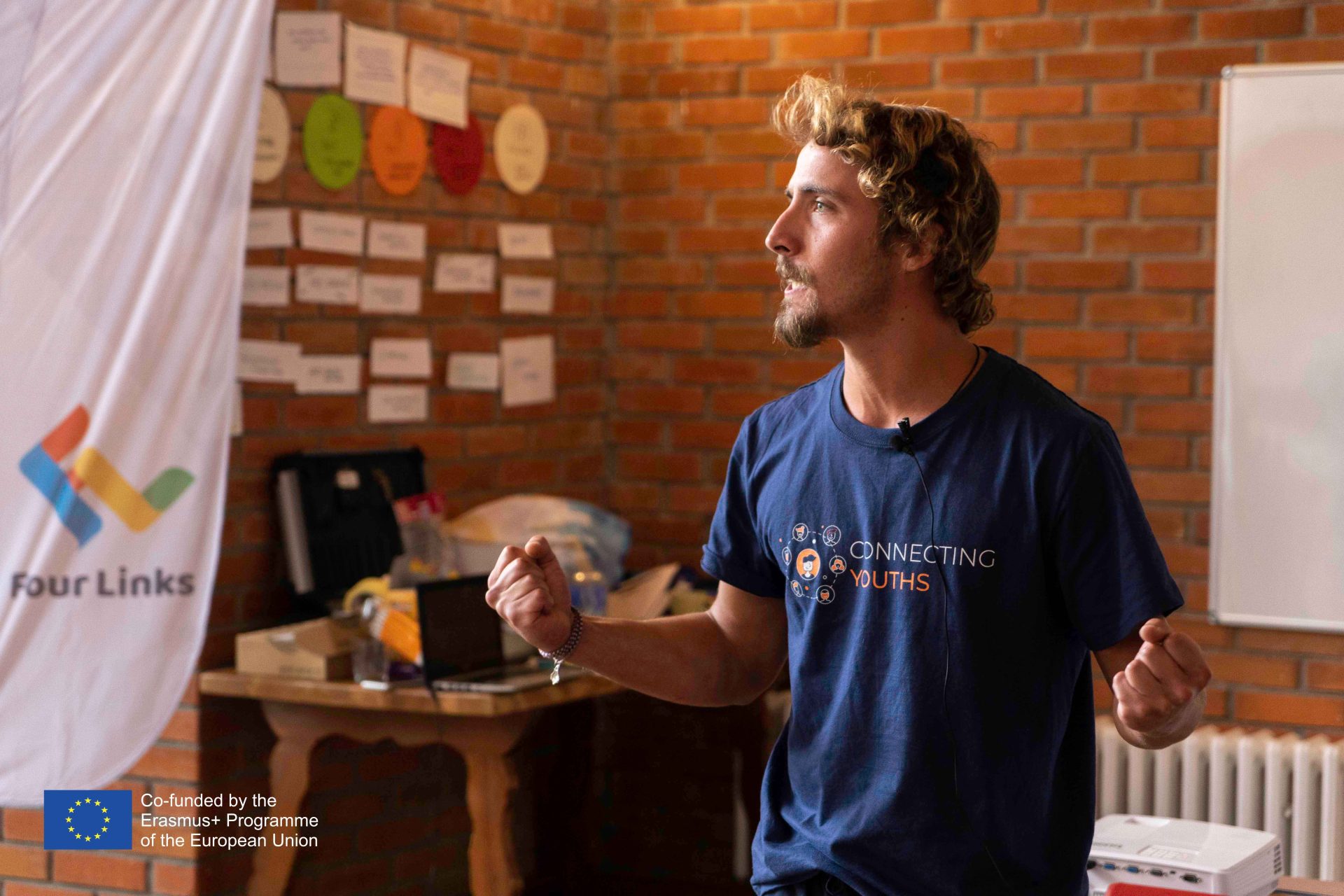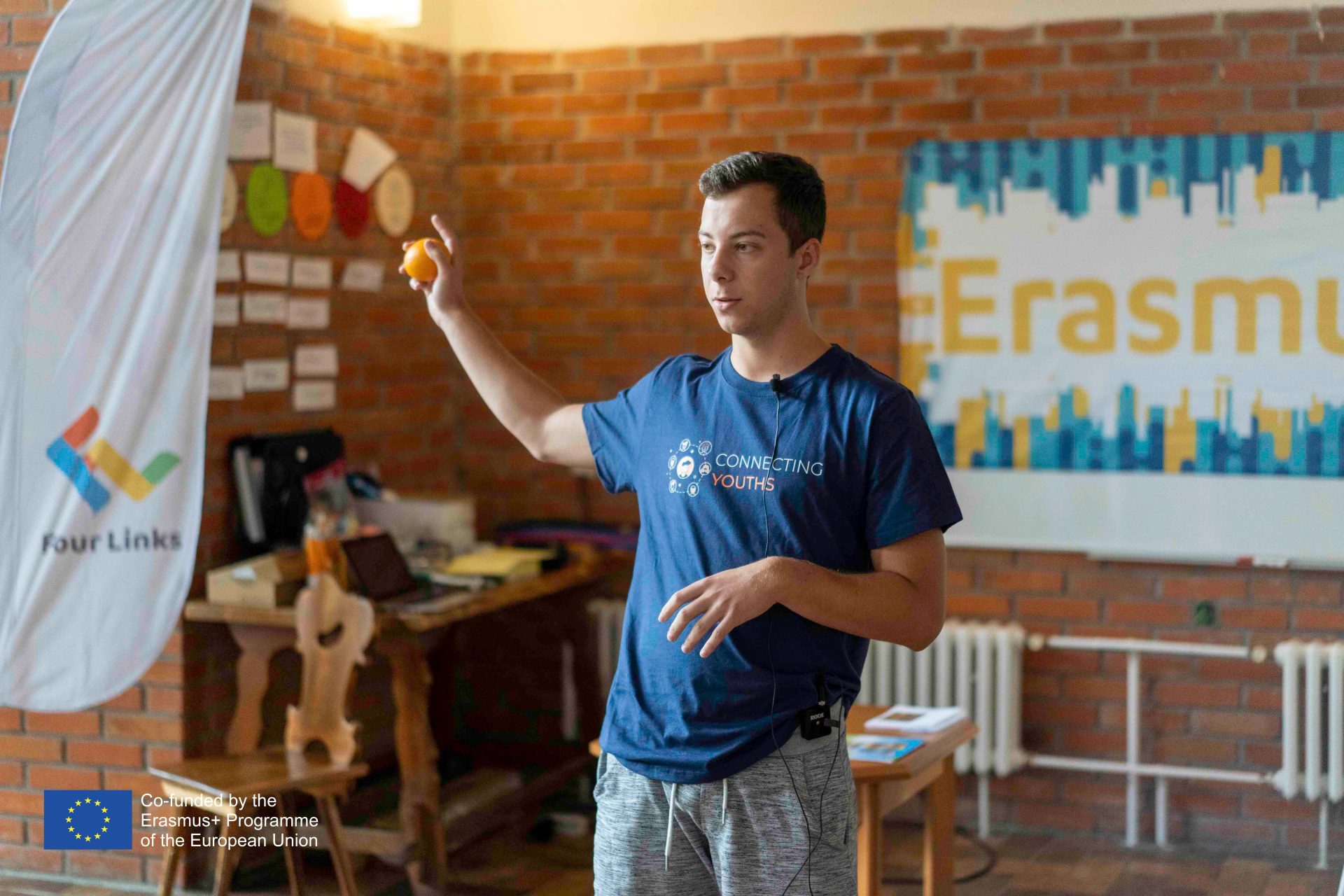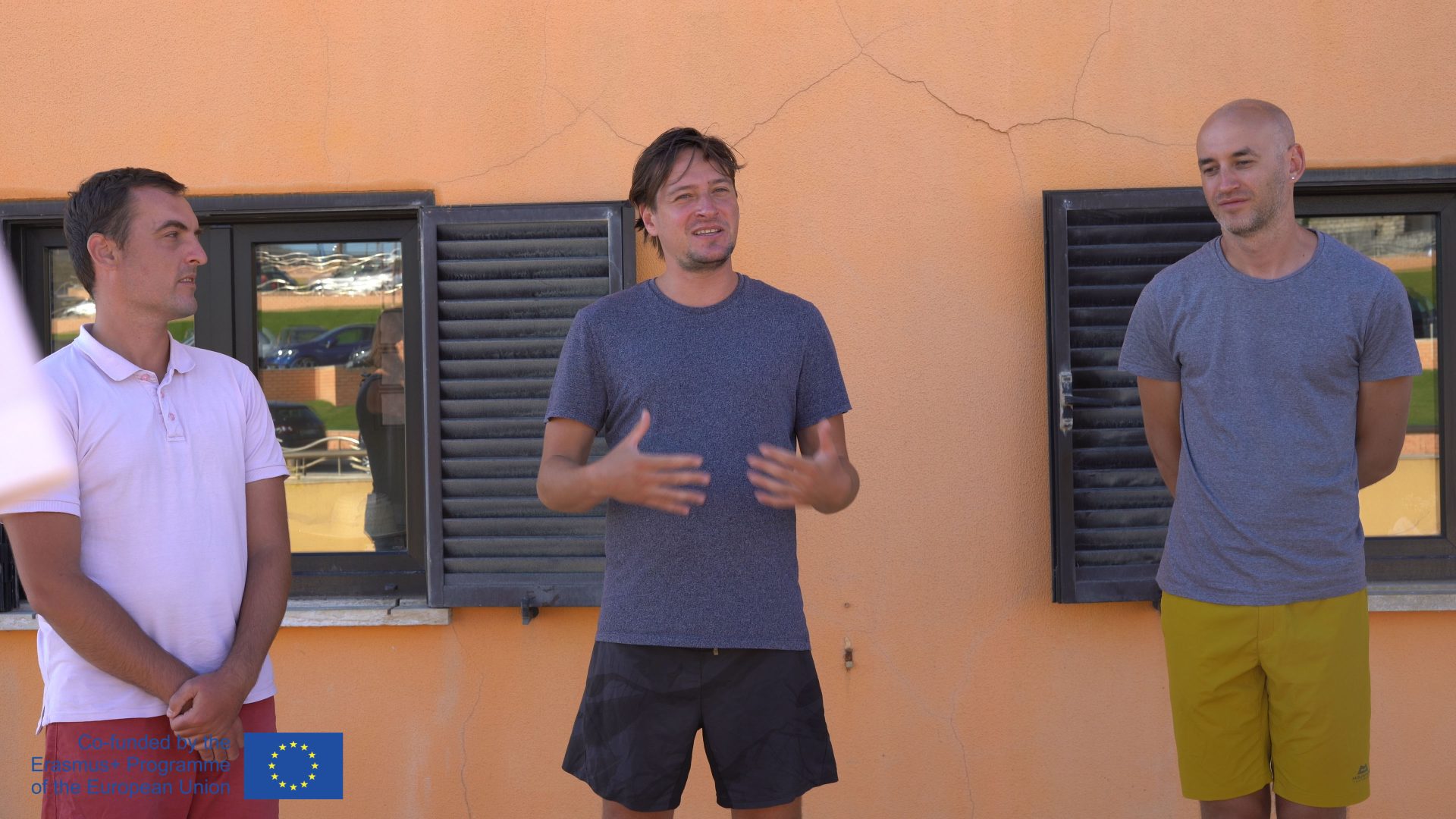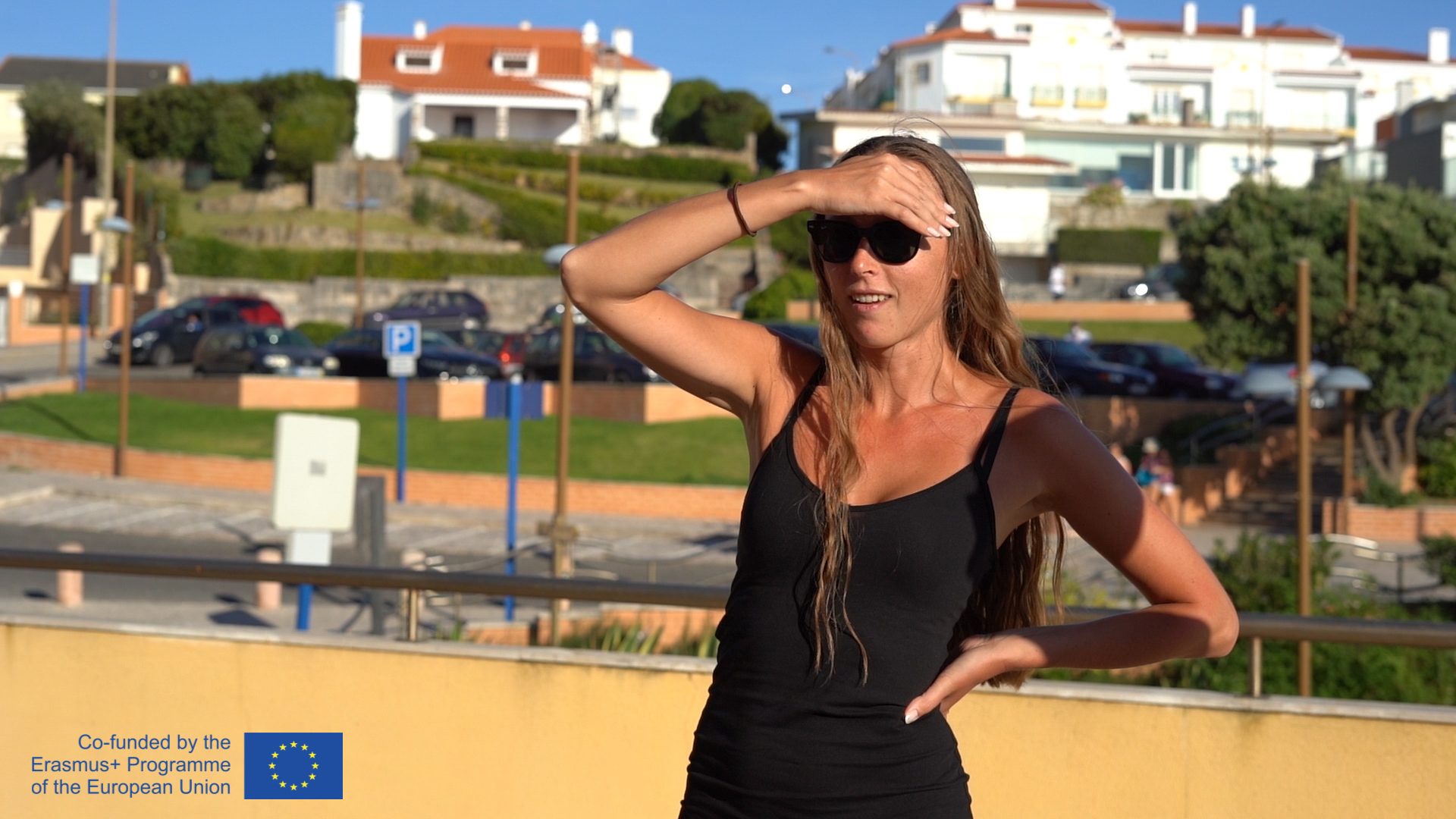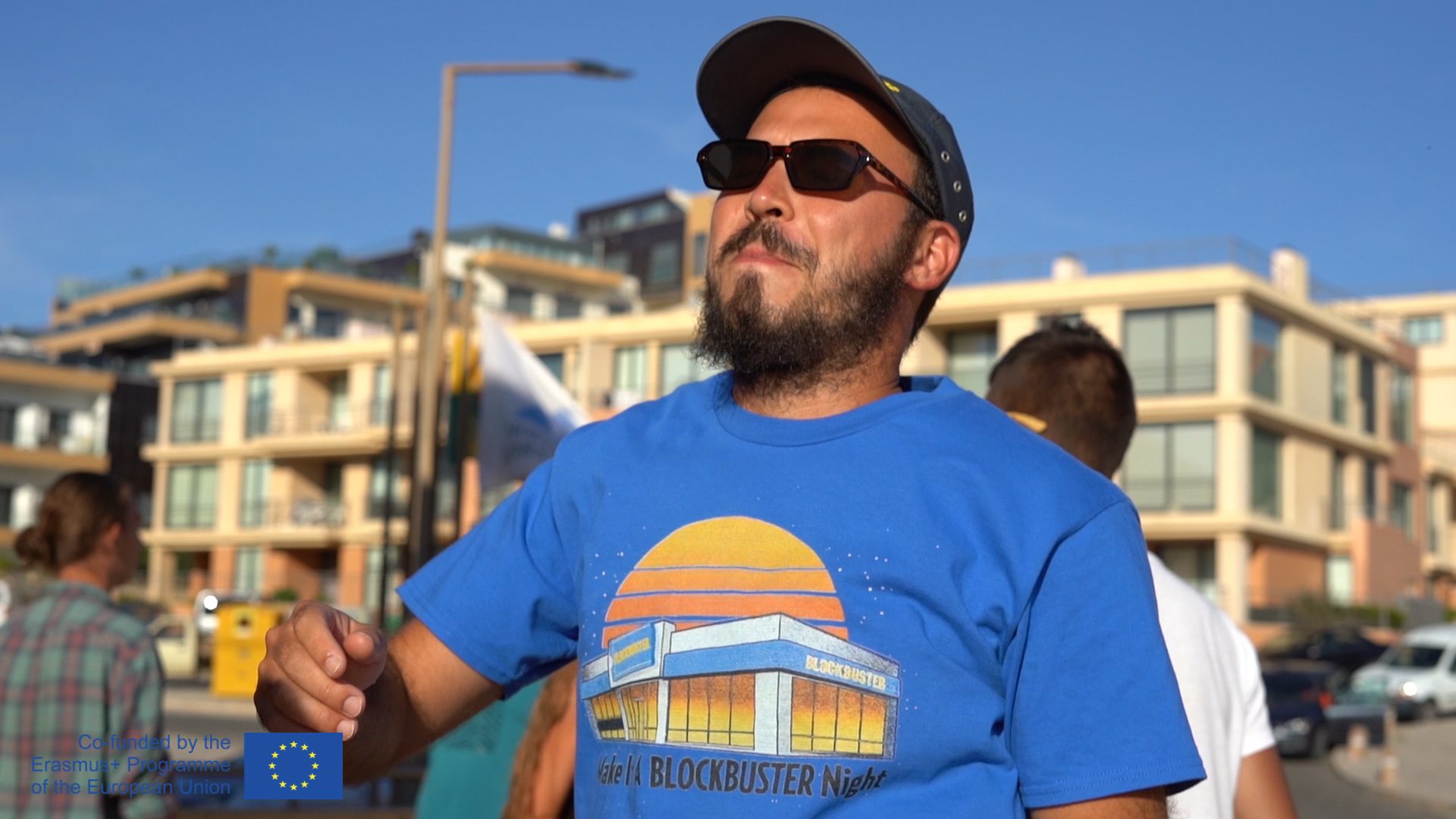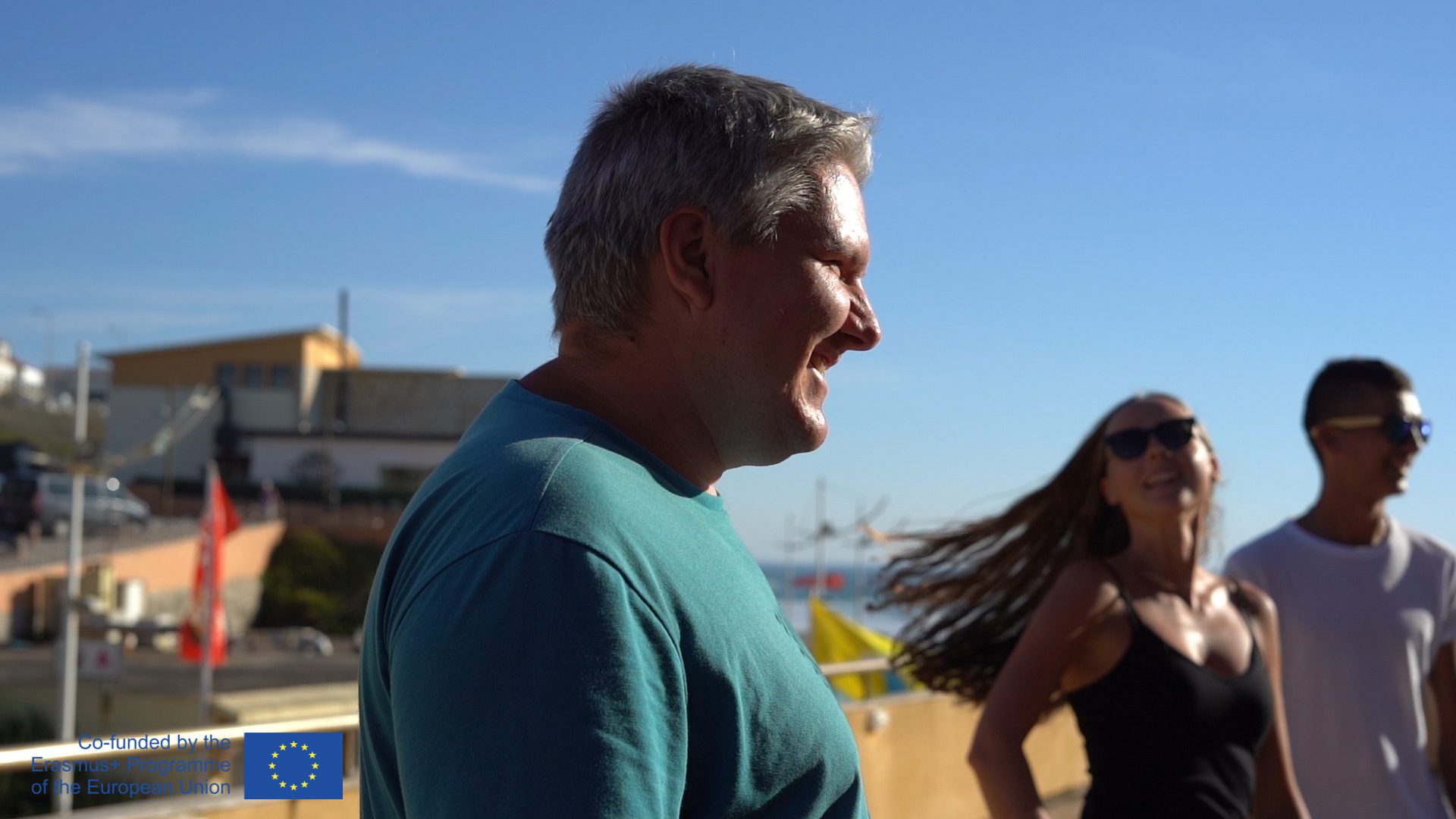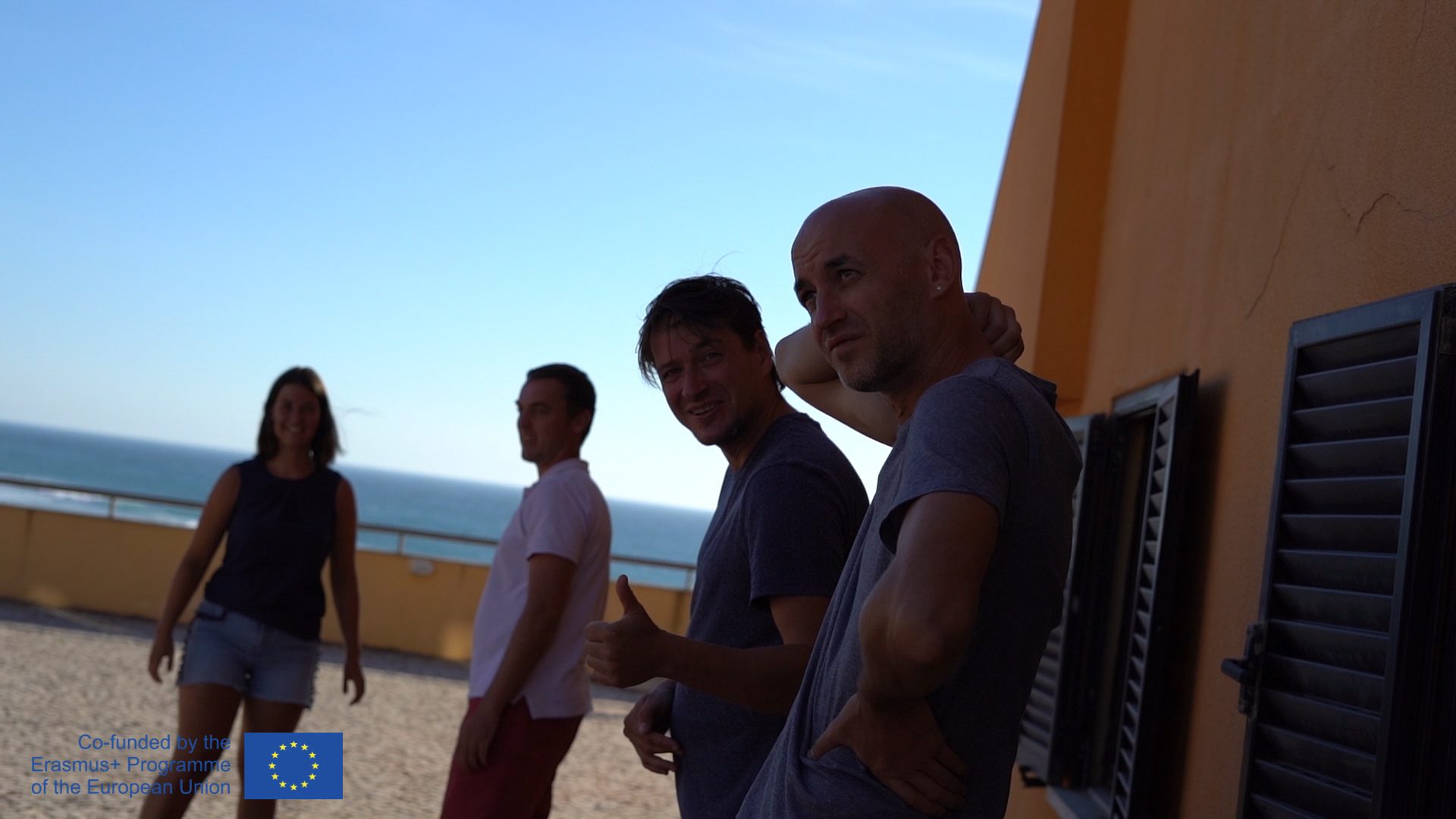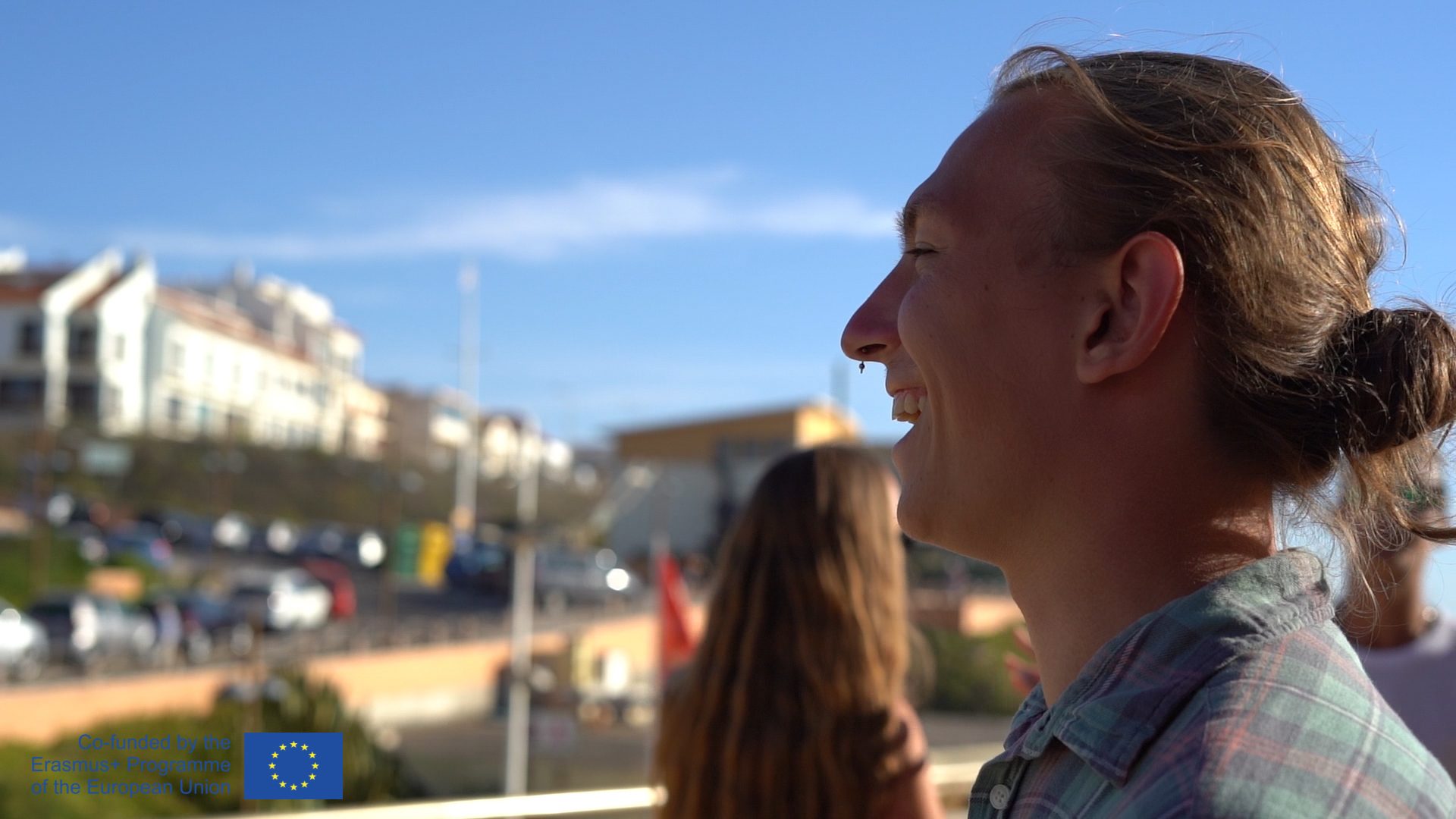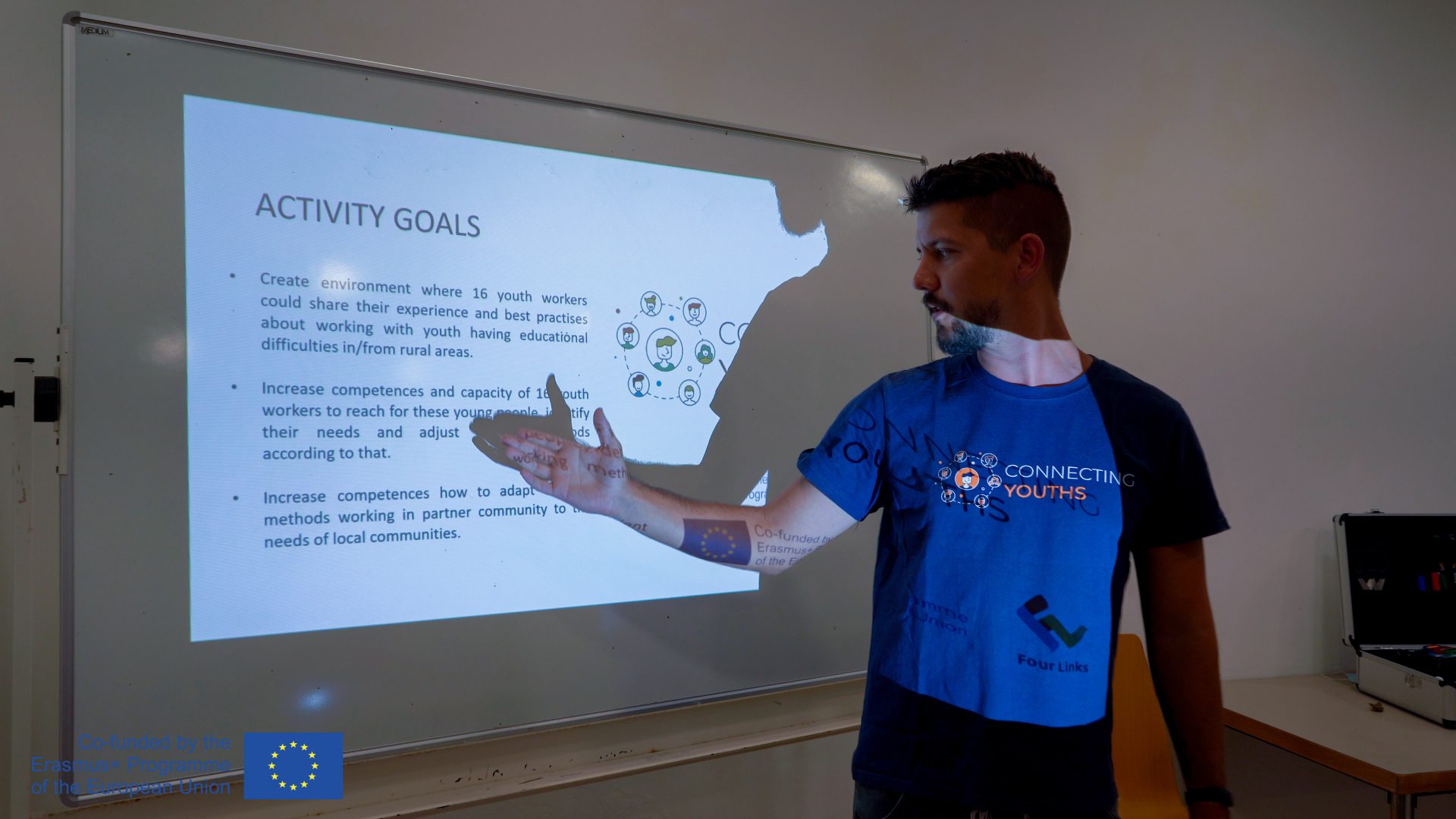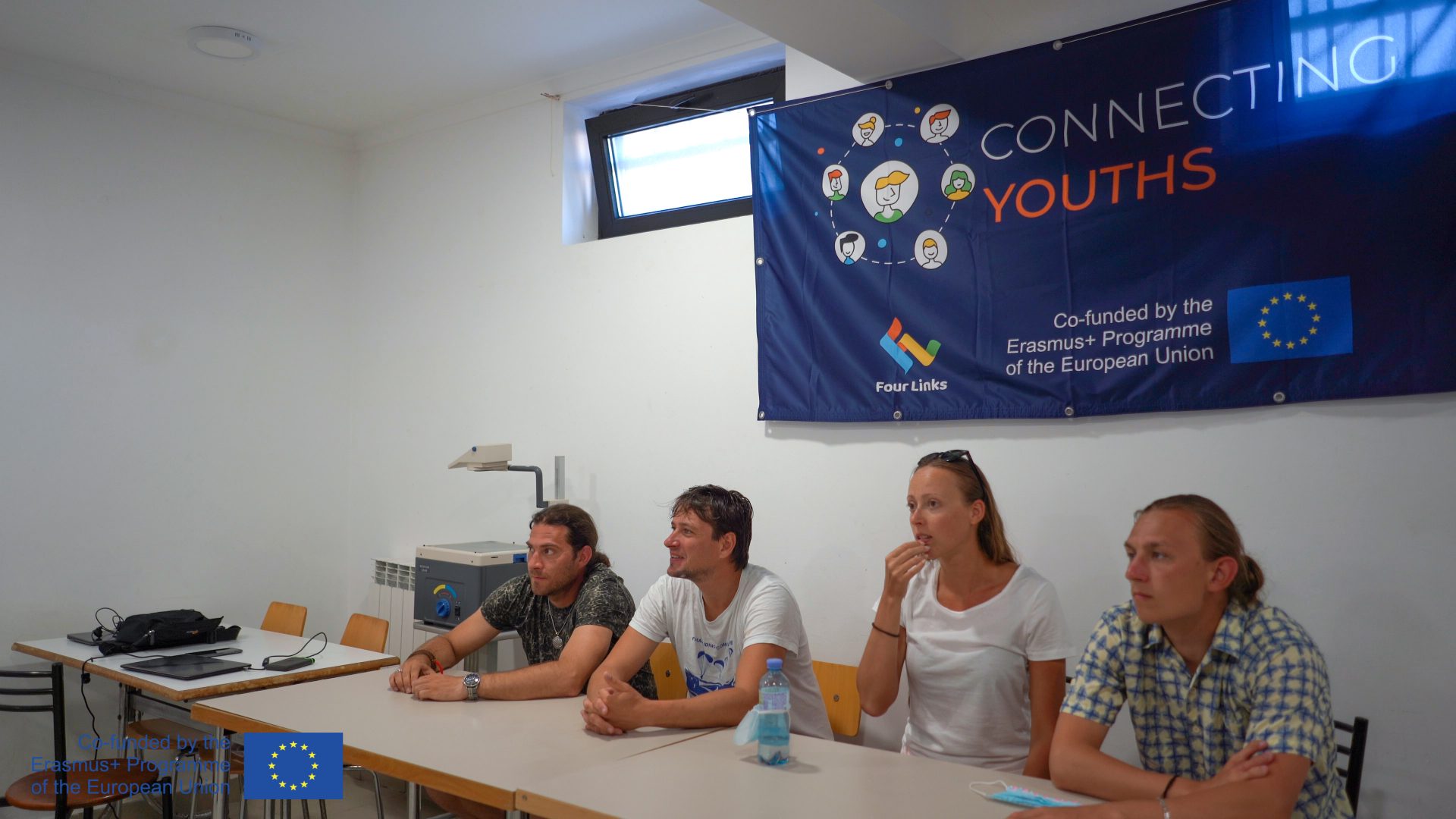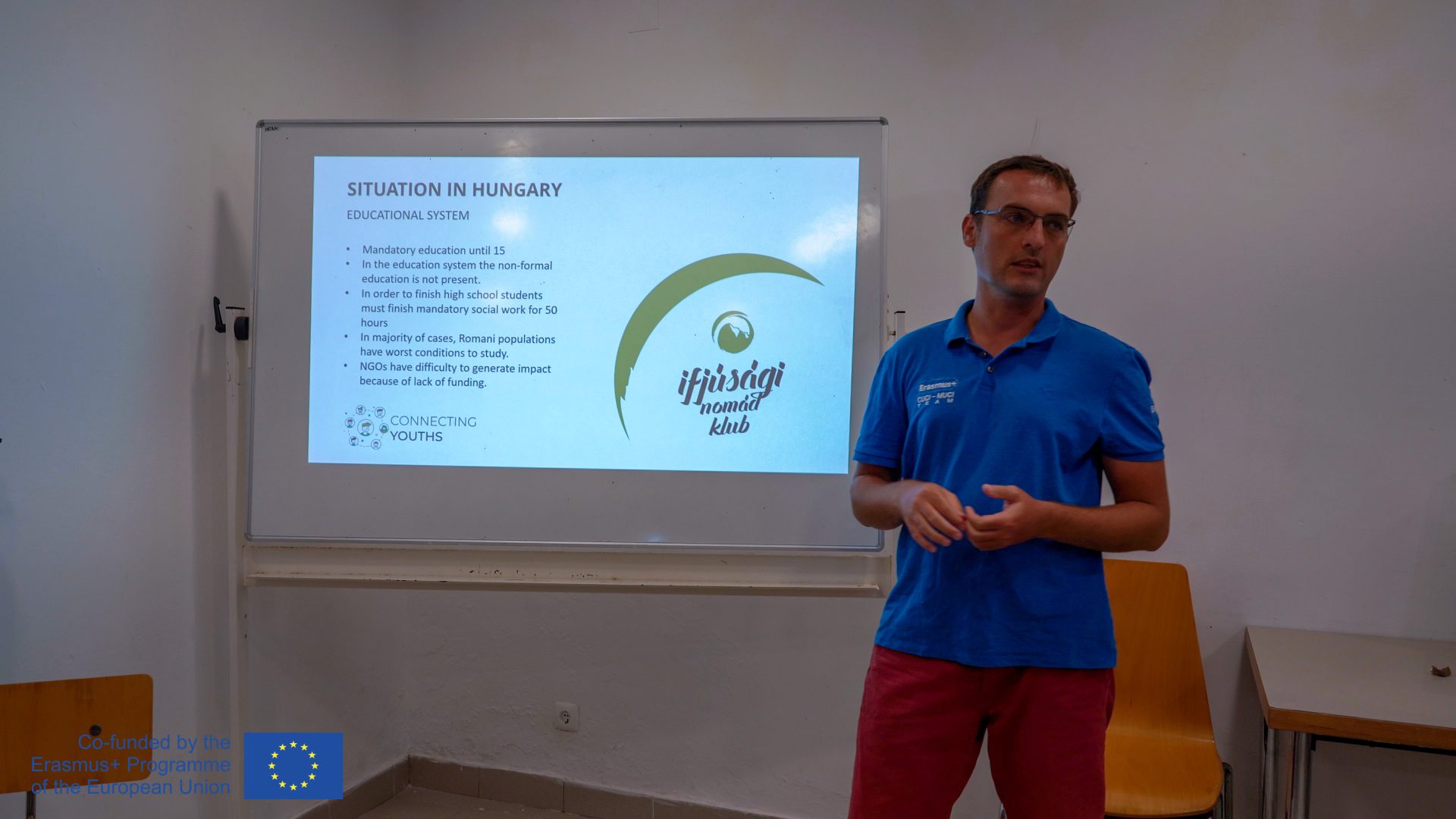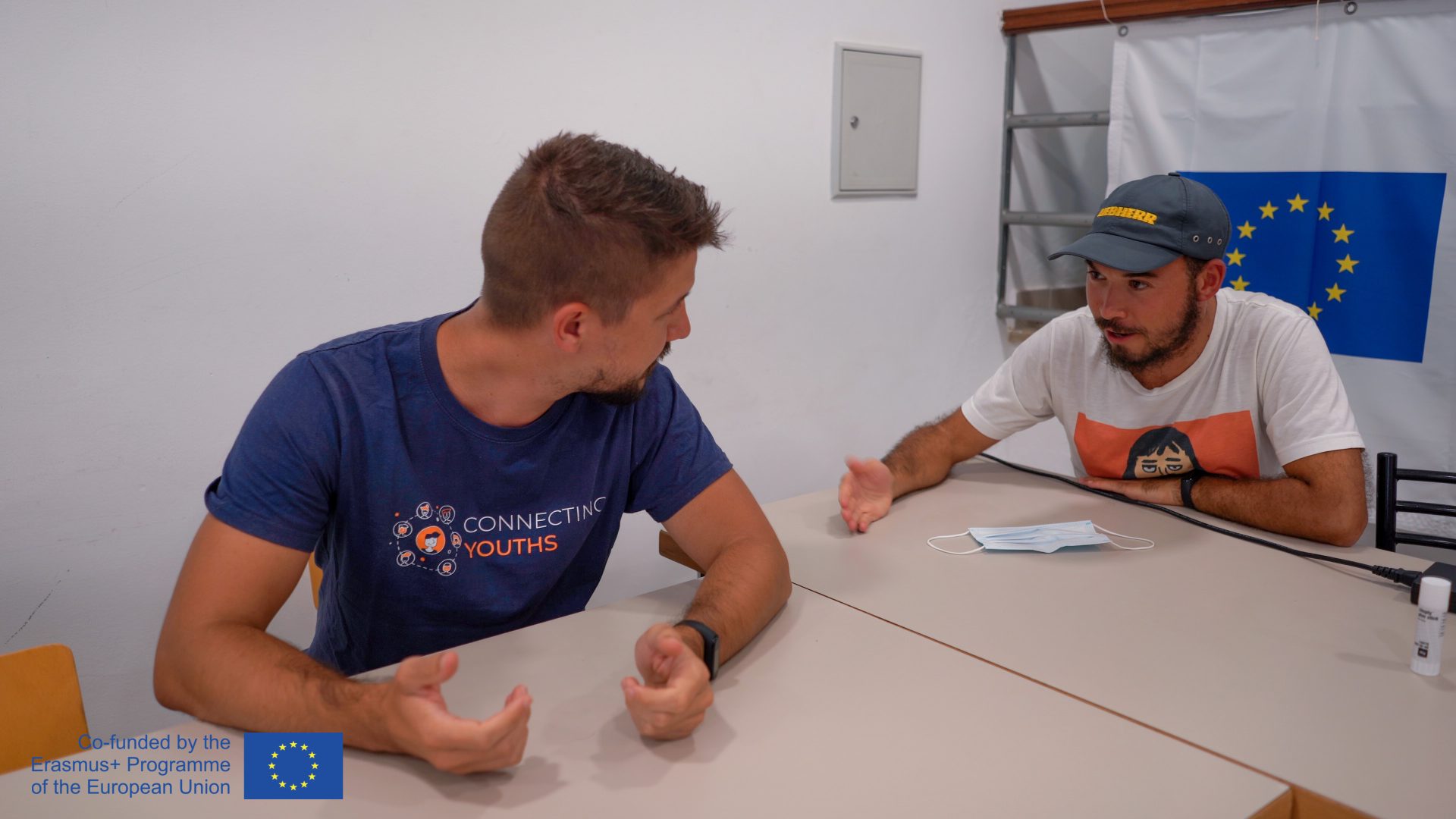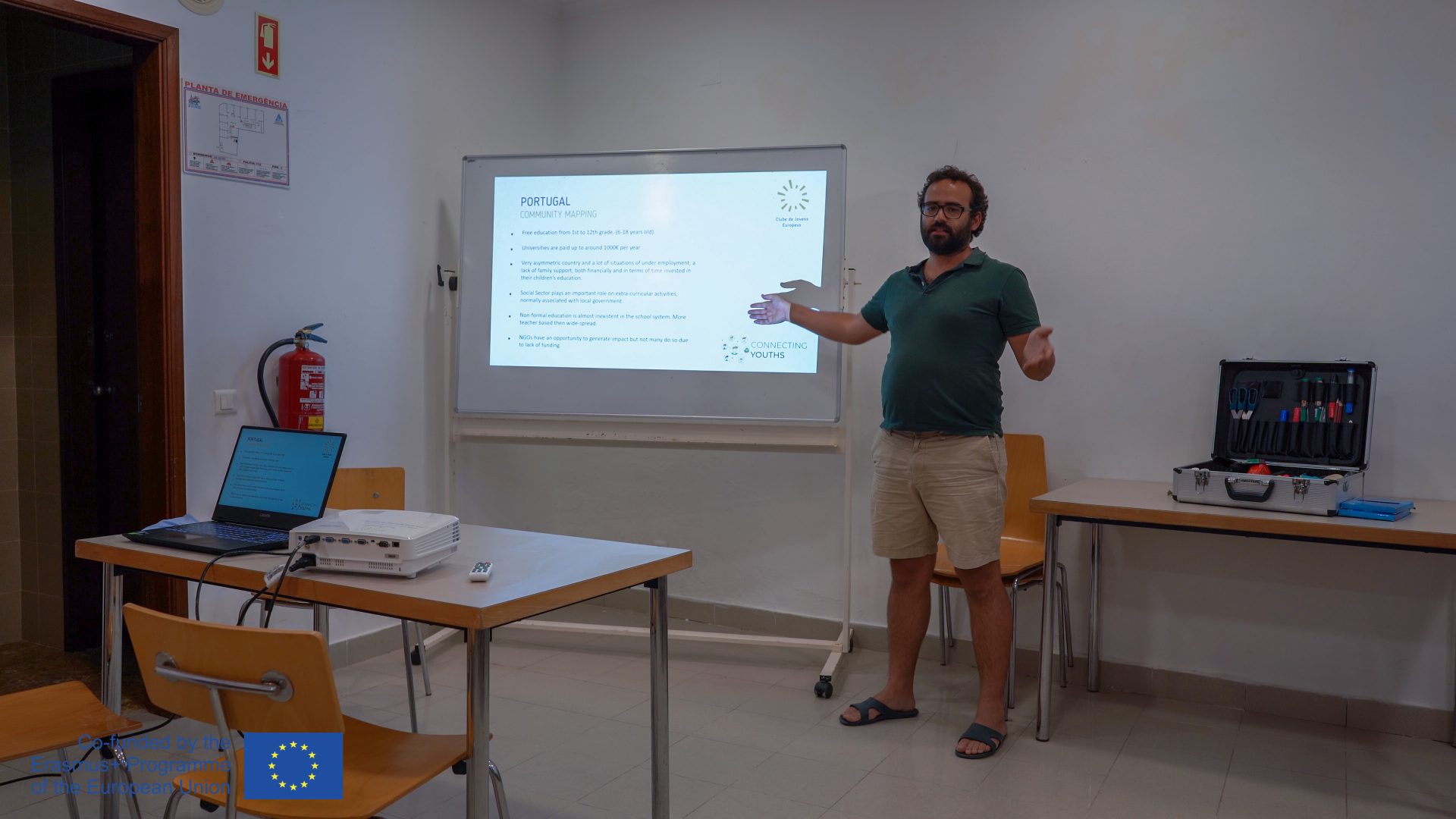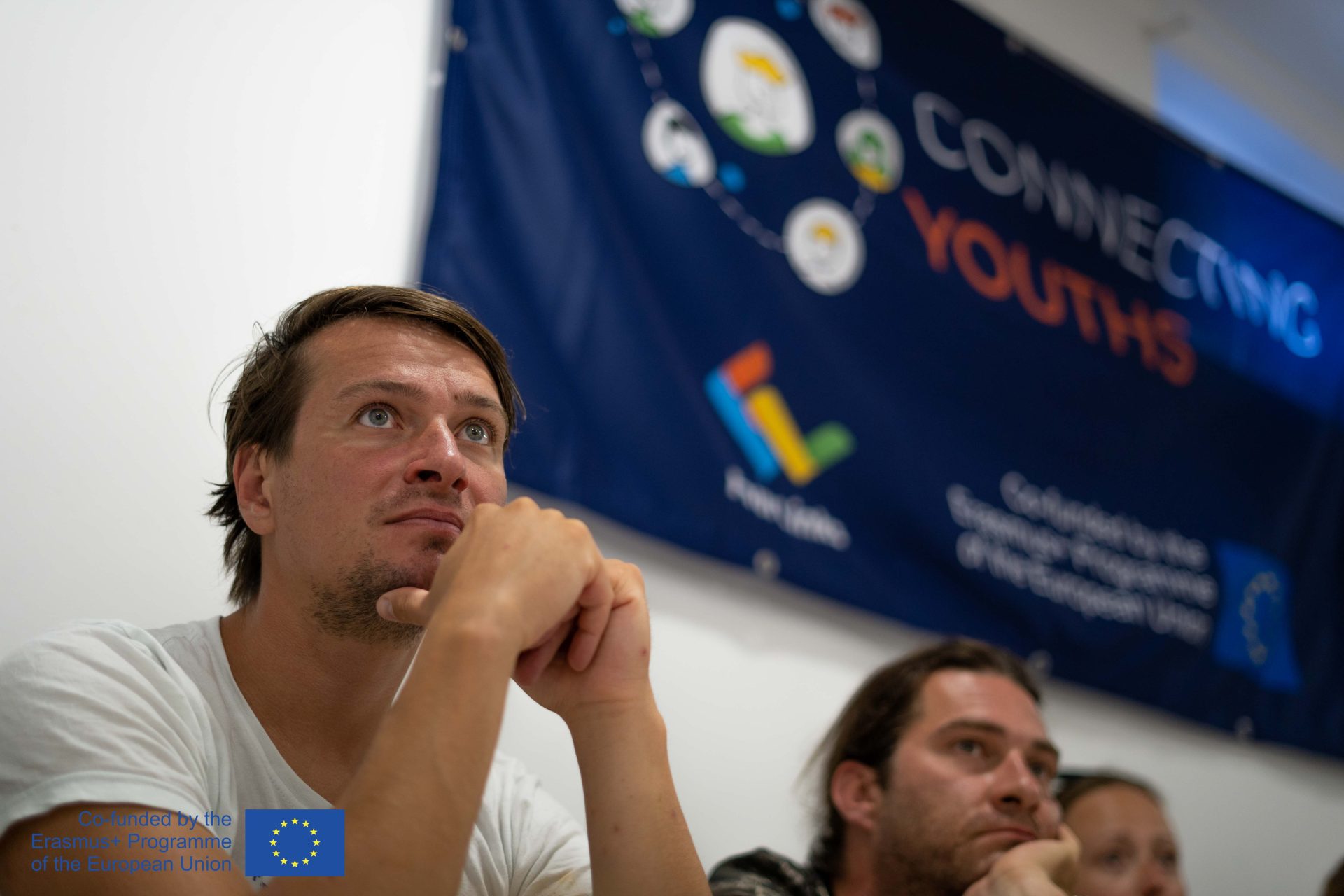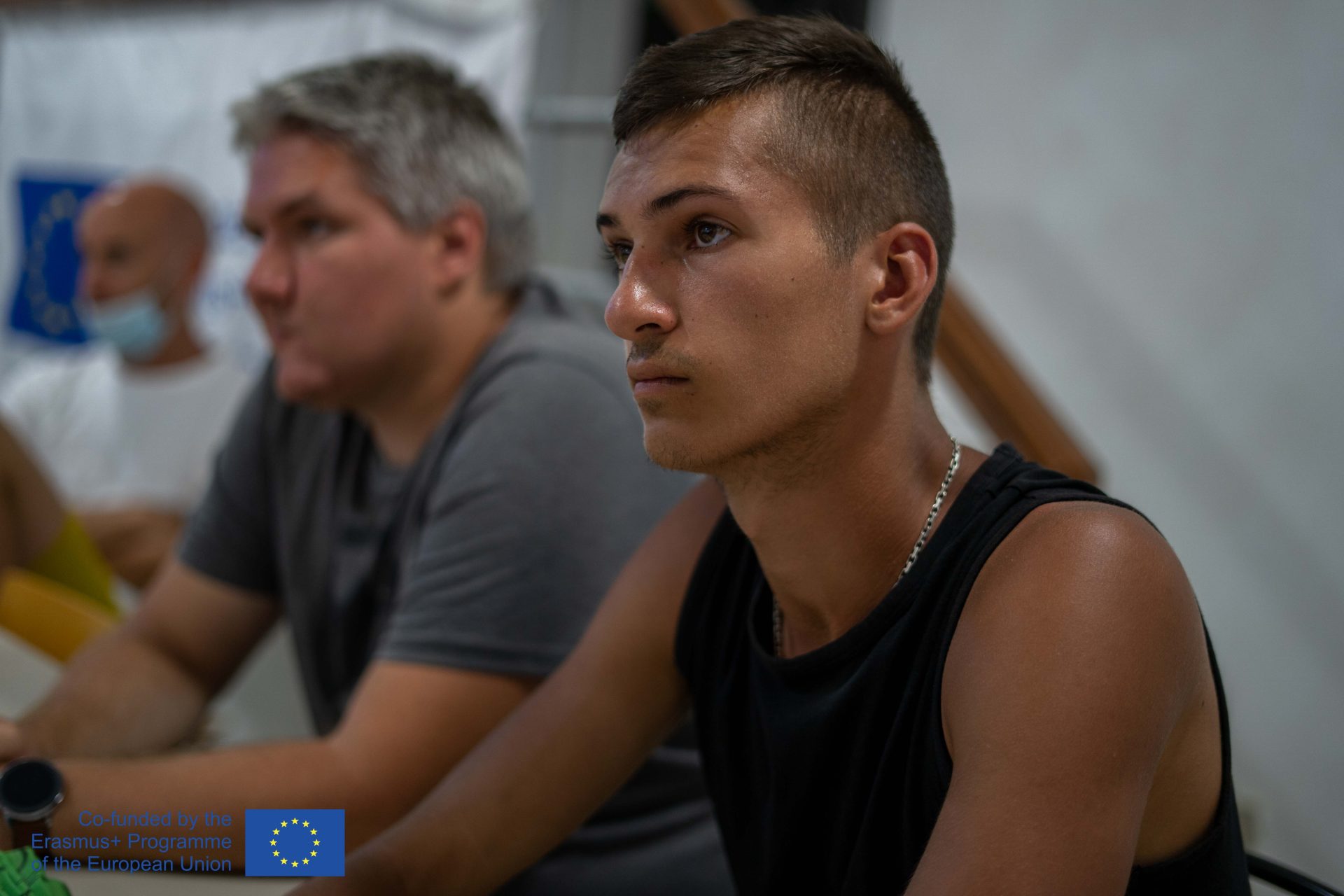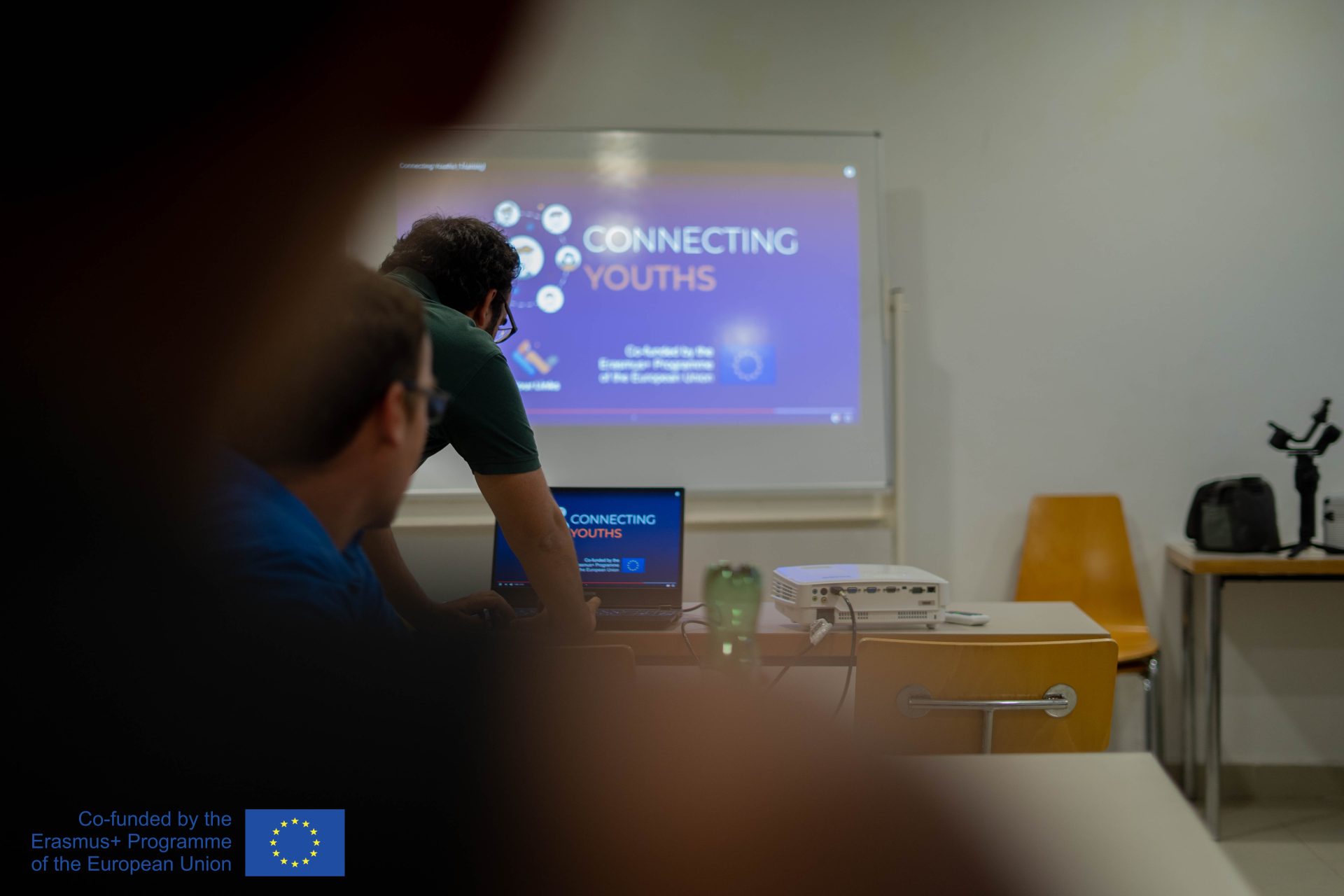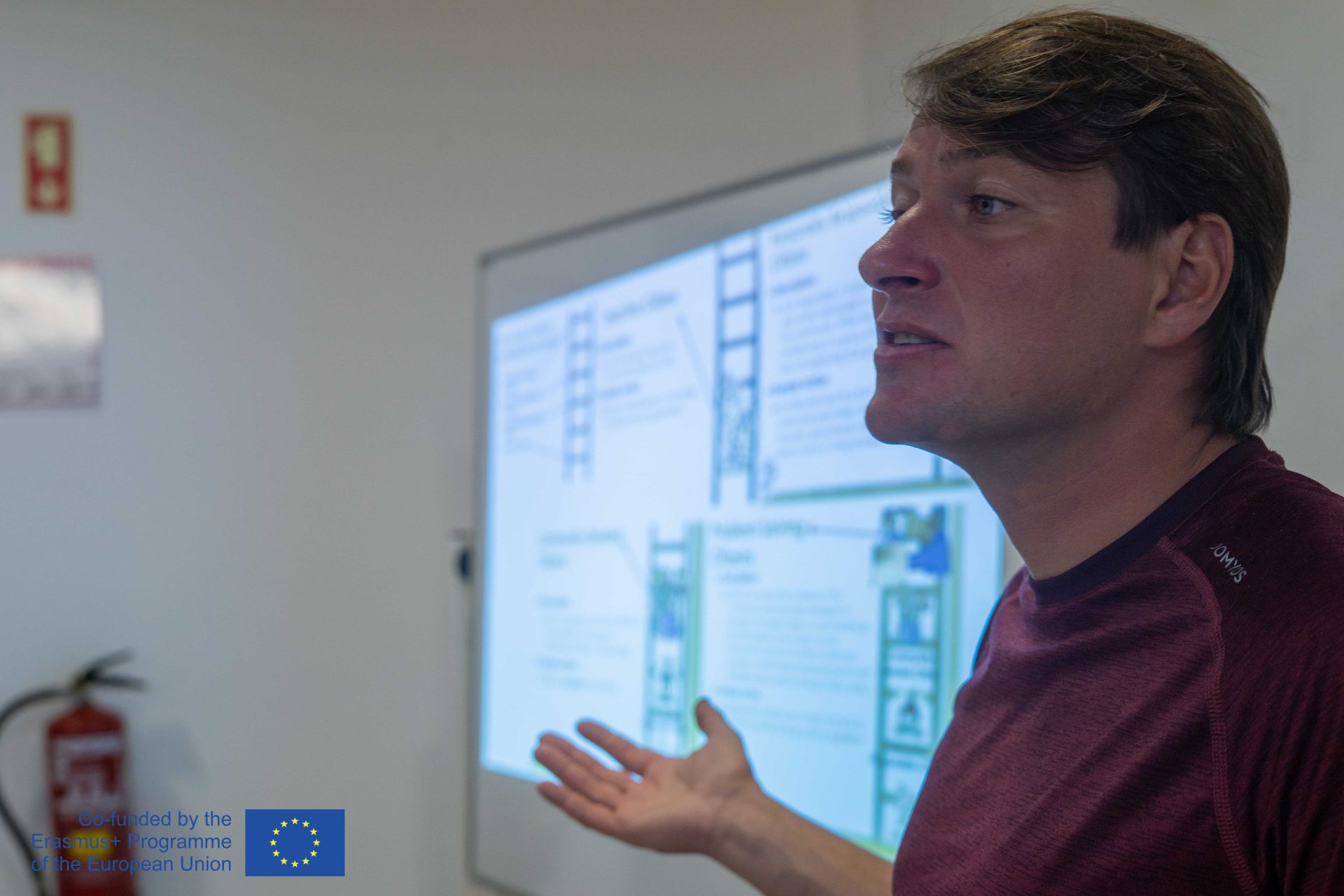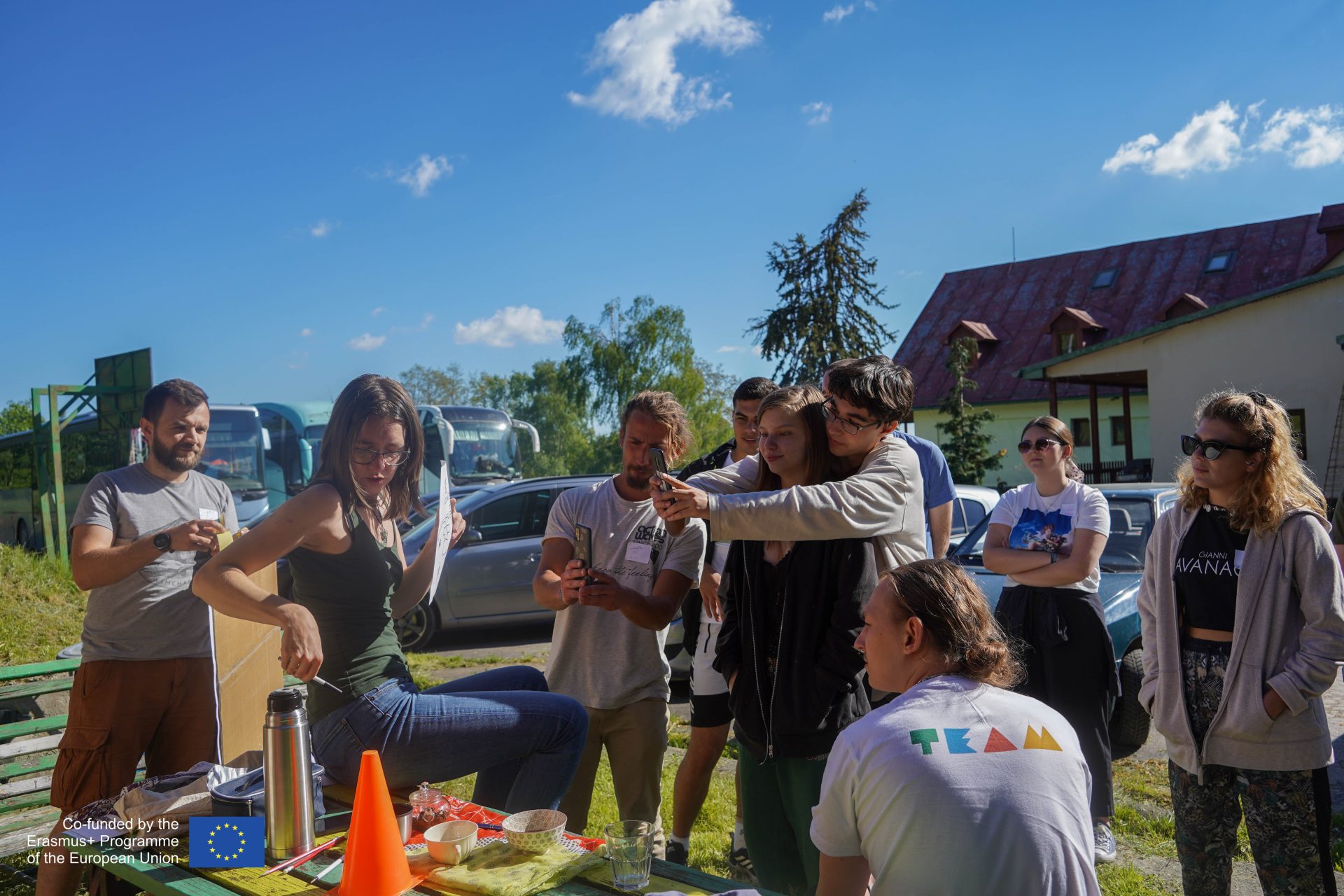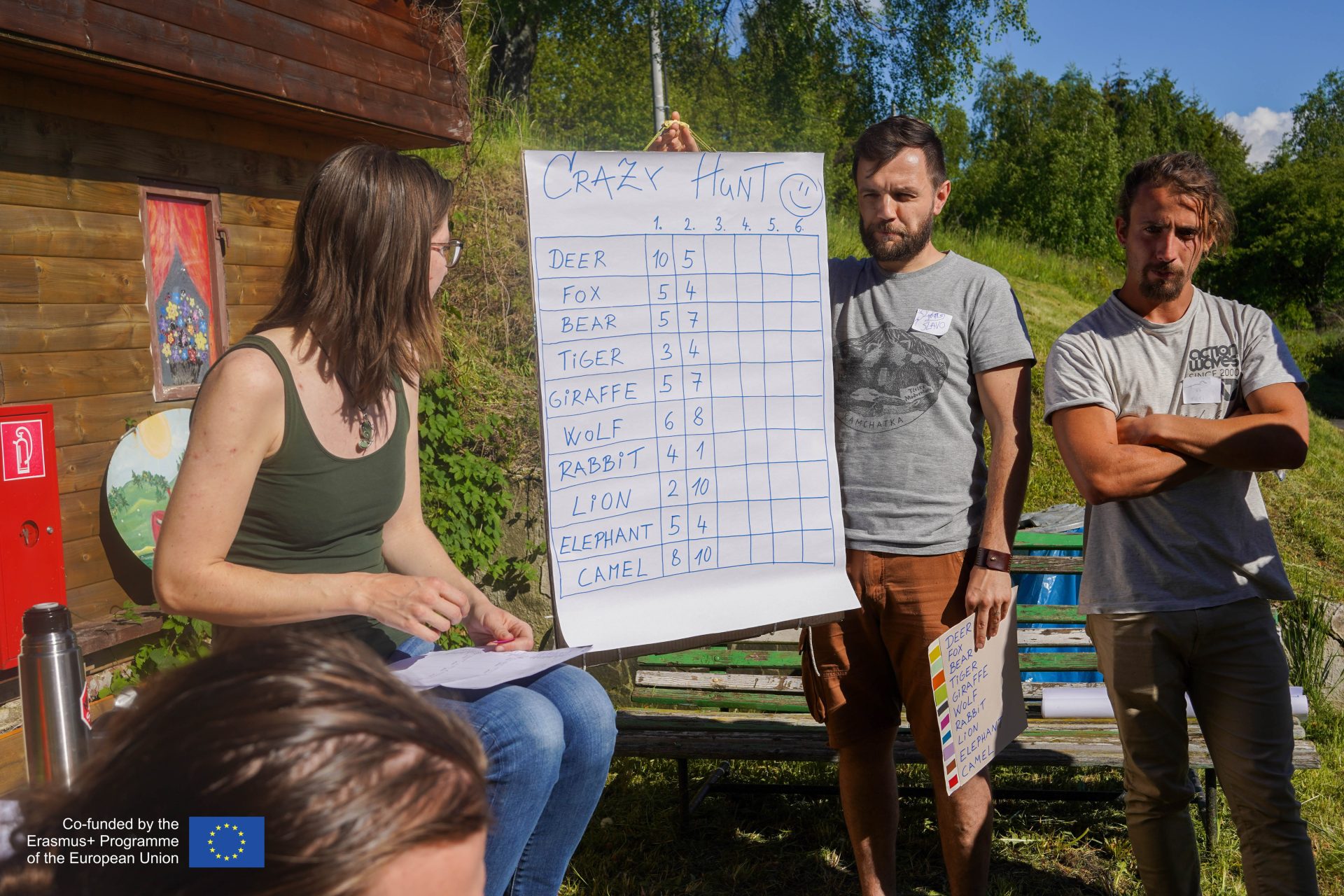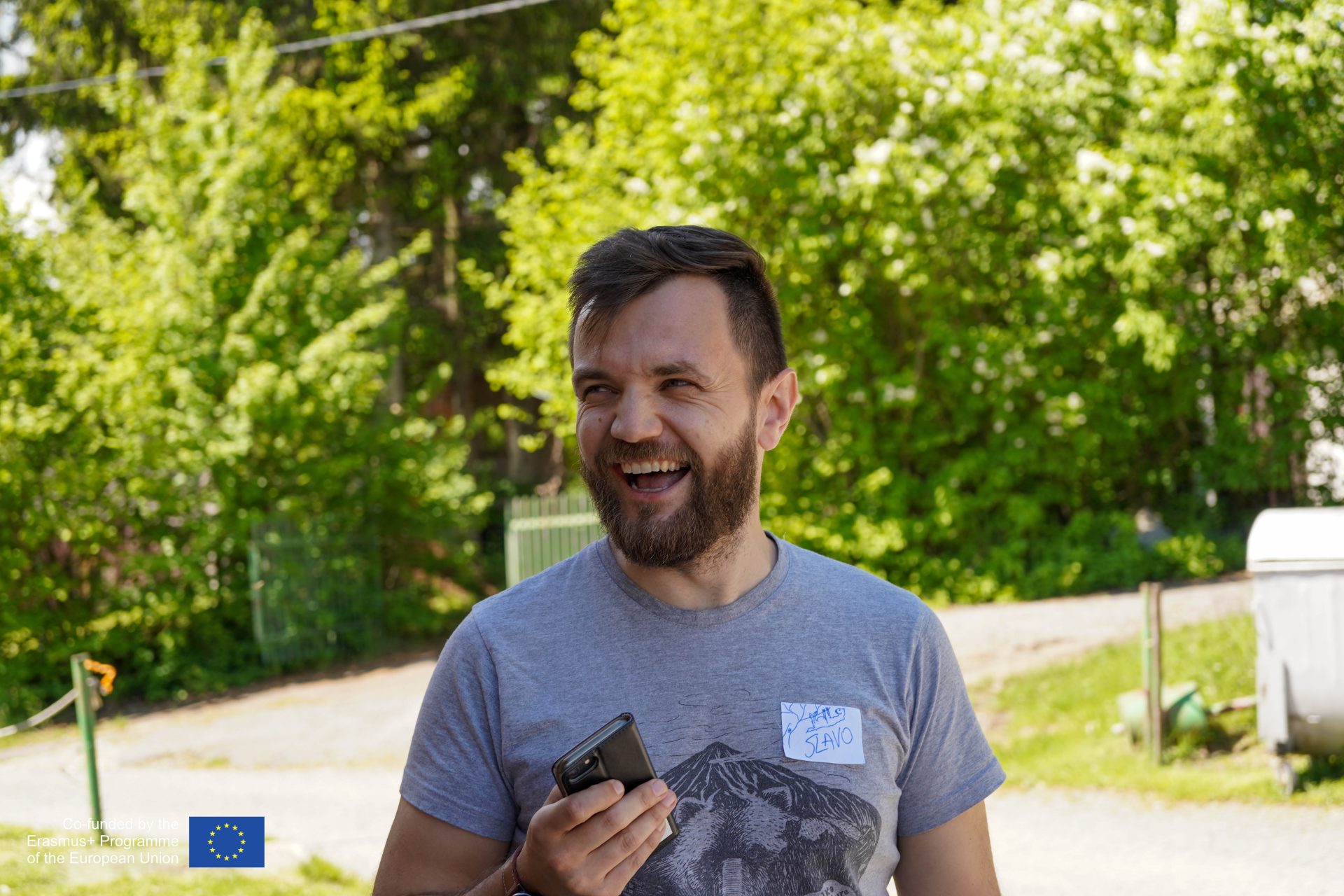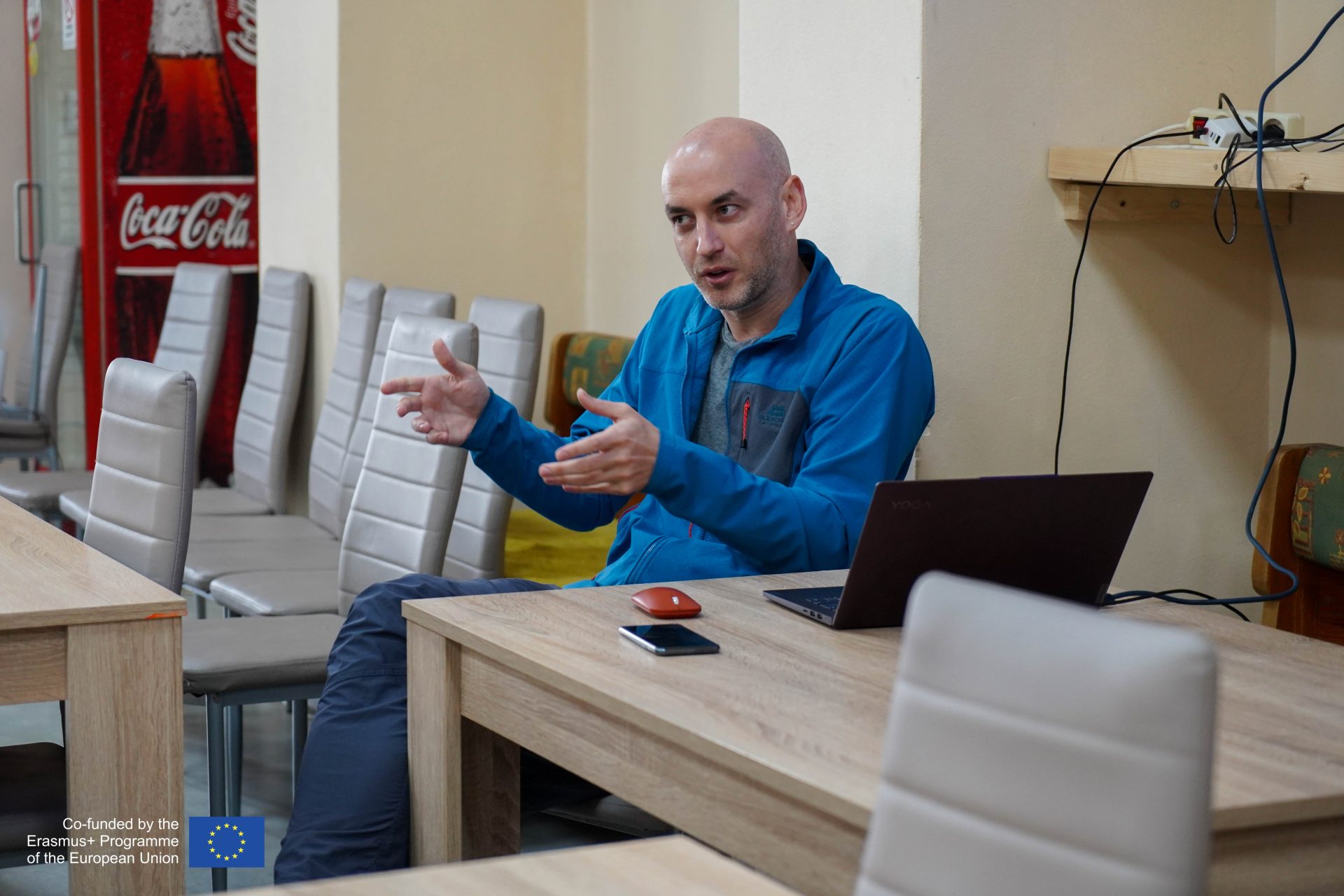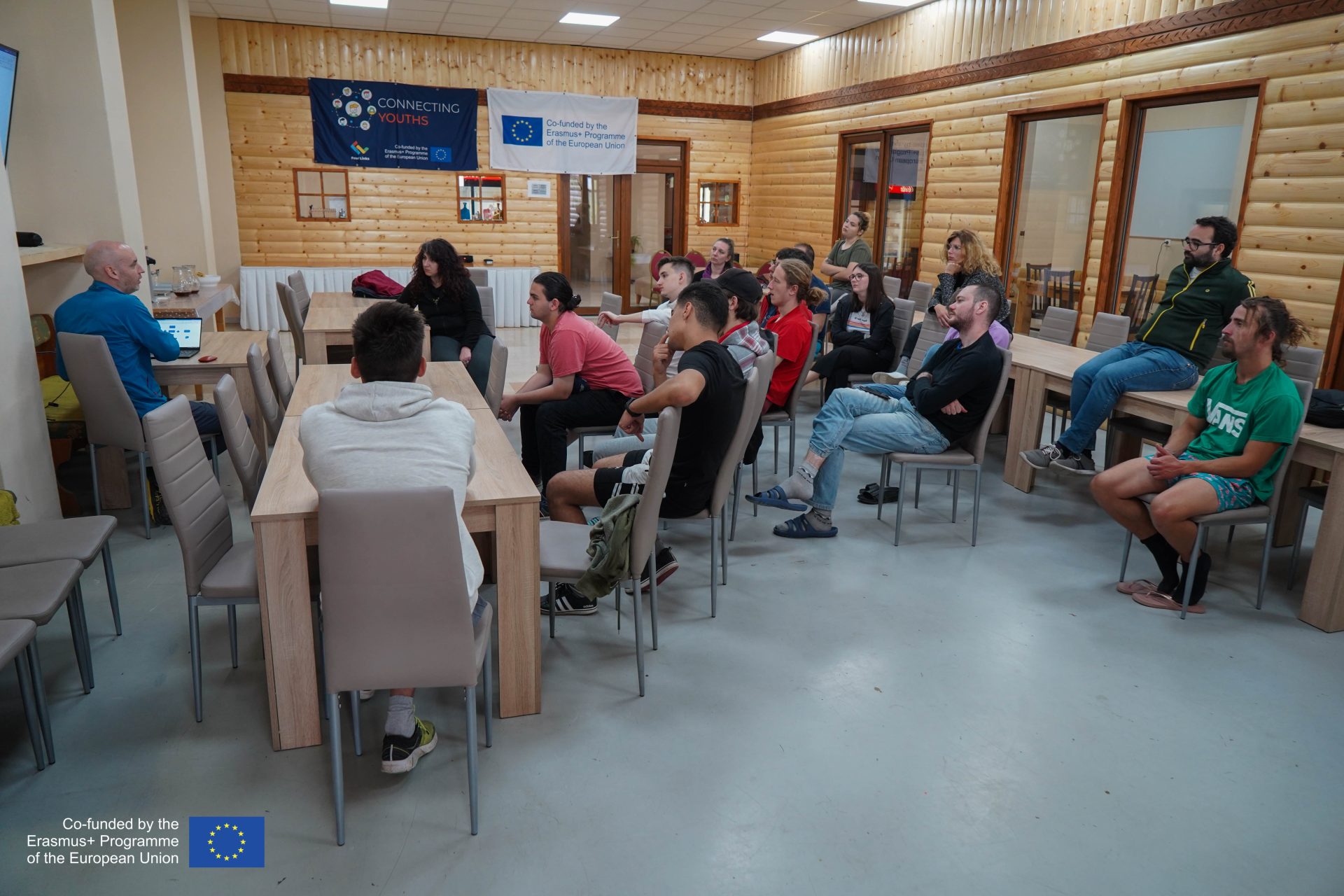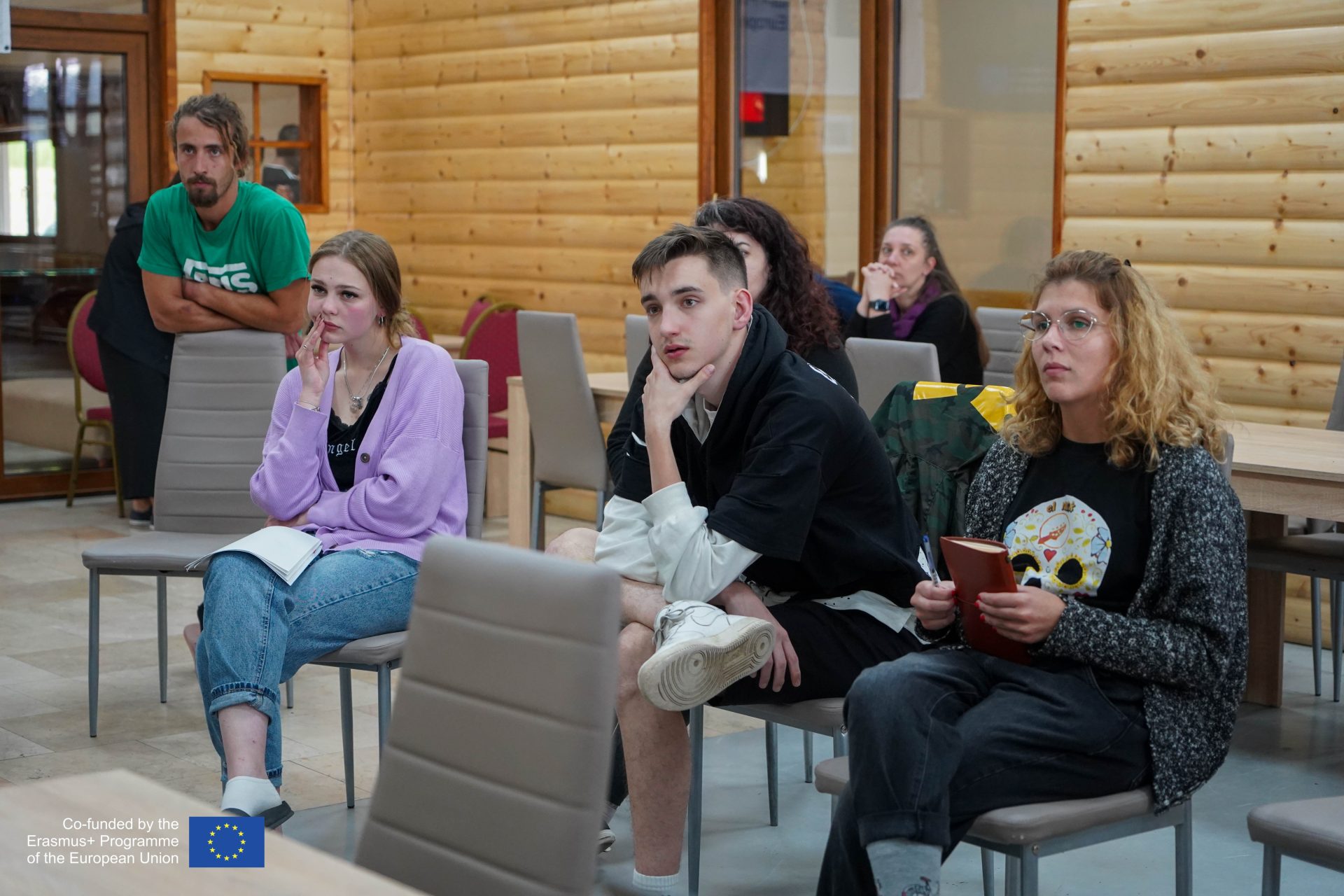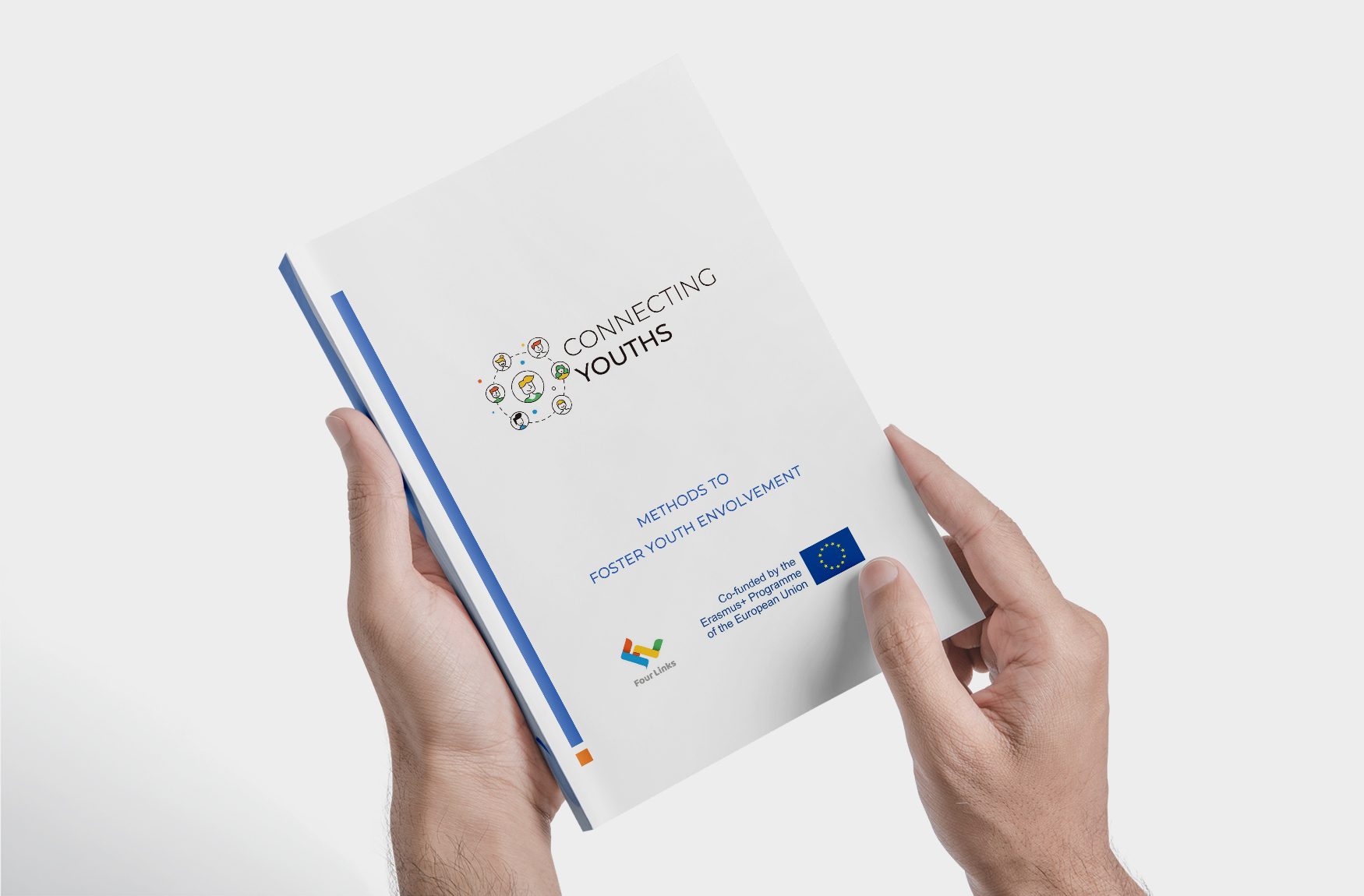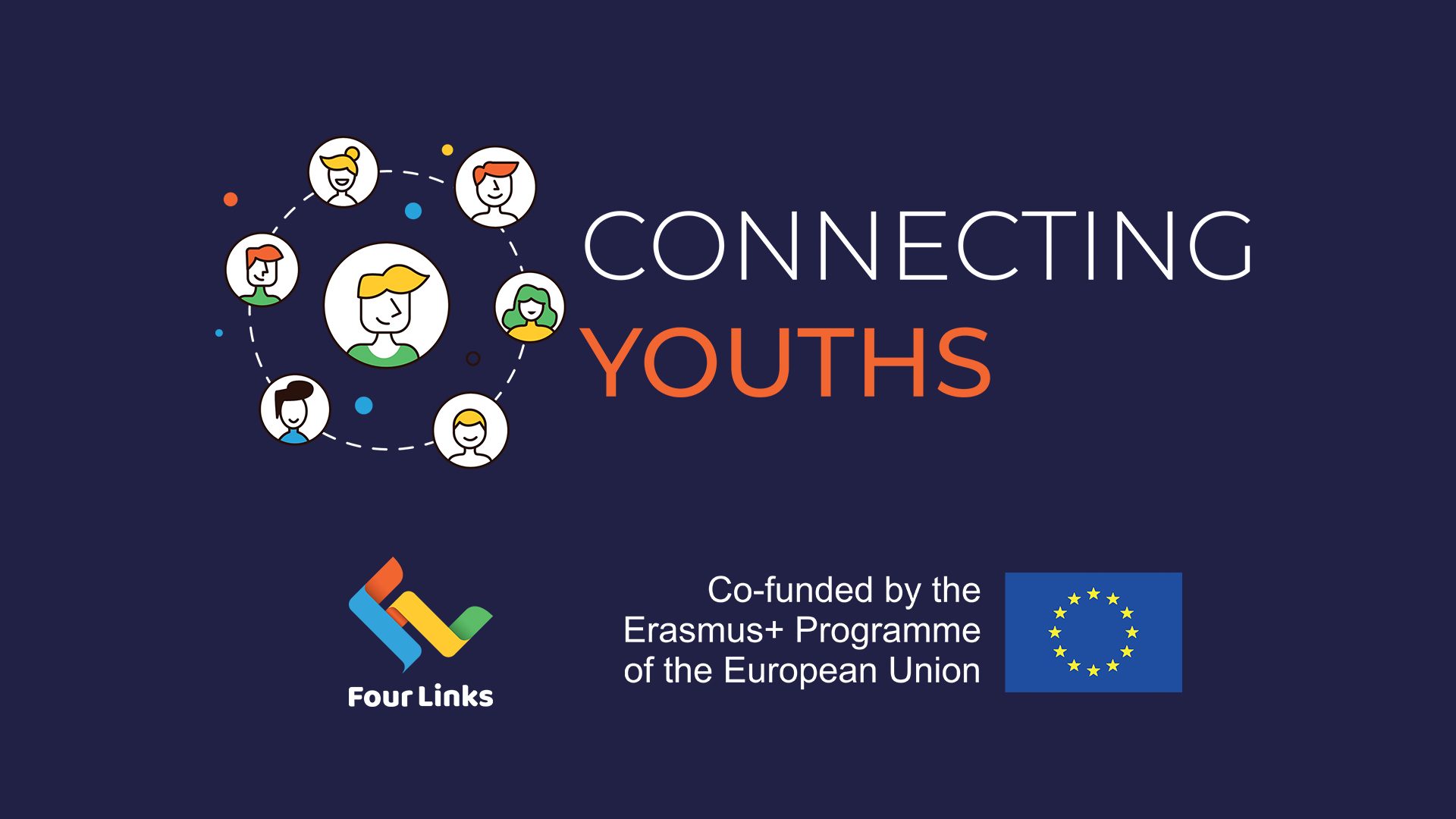
The Project
Four Links and its partners got together to tackle the lack of active participation of youth in their communities. Statistics show that only 3% of youth (EU28) have stayed abroad for the purpose of volunteering for longer than 1 month. Situation in participating countries is no better: CZ 3%, HU 7%, SK 3% and PT 1%. There is still a huge percentage of people who have never participated actively in their communities.
Our Goal
The goal of this project is to increase competences of youth workers from 4 NGOs in CZ, HU, SK and PT to reach marginalized groups of young people, involve them in NGOs and communities’ activities, be able to apply different working methodologies with different groups of young people.
Objectives
- 1
To equip youth workers from 4 NGOs in CZ, HU, SK and PT with competences useful to reach marginalised groups of young people.
- 2
To increase competences of youth workers to decide upon and apply different, most efficient methodologies when working with different target groups with focus on digital tools and social media.
- 3
To involve young people facing specific fewer opportunities in project activities and afterwards.
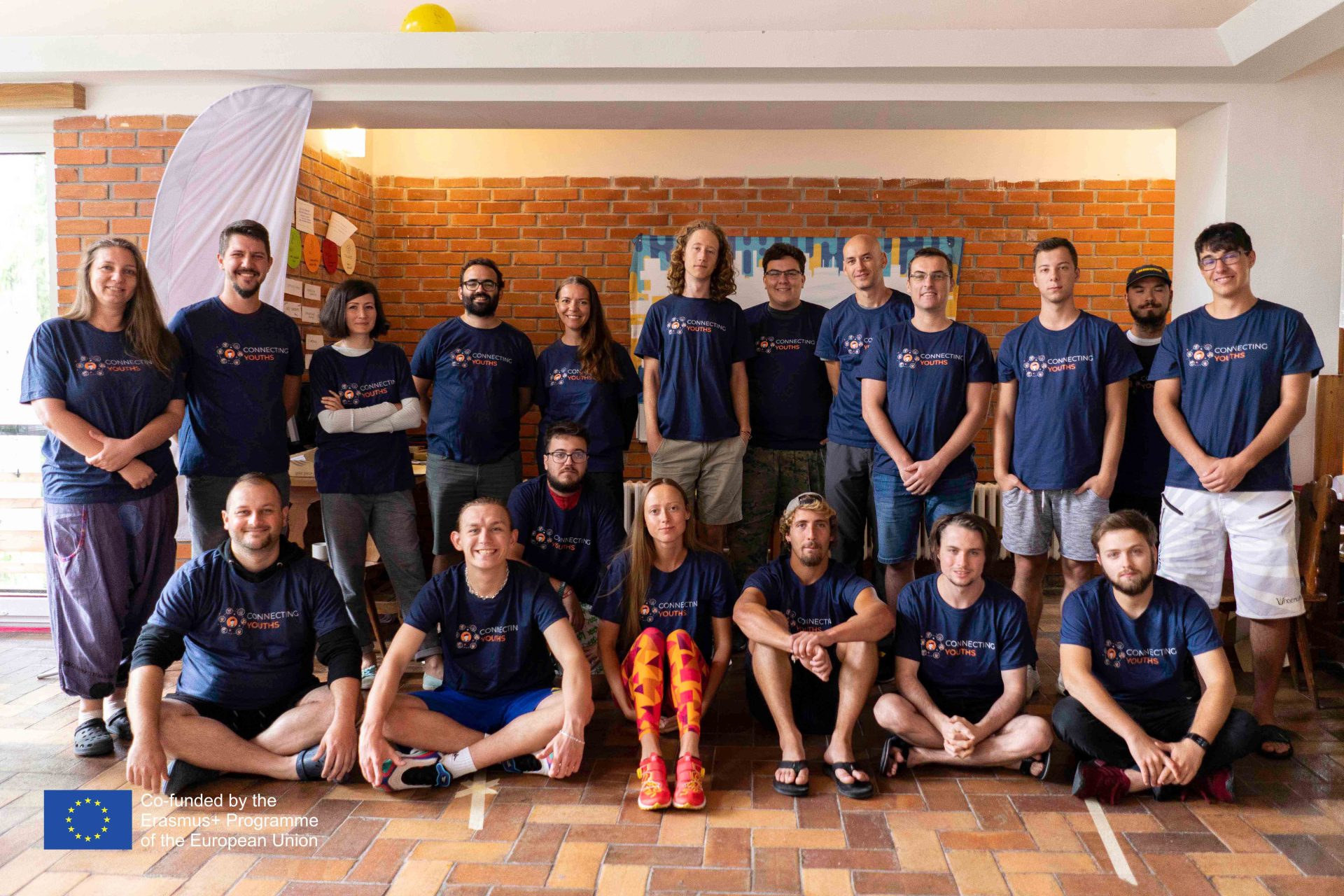
Impact
We expect this project to contribute to raising inclusion in all 4 communities and engagement of young people facing fewer opportunities into communities life. More youth will be aware of Erasmus+ and its opportunities, non-formal education, its benefits. NGOs will reach more marginalized groups (youth from minorities, with educational difficulties in/from rural areas), more youth will be involved in community and NGOs activities which will result in many different competences increased, including key competences of these young people.
We are confident that with the help of all four partner NGOs we will spread word around Europe about the need to work individually with young people facing different fewer opportunities, i.e. using methods that are efficient and suitable to reach out for minorities may not work with young people having educational difficulties and vice versa.
Activities
During the 18 months of our project, we implemented various activities, both transnationally and locally.
Besides transnational project management meetings we have organized three learning mobilities in Czech Republic, Portugal and Slovakia.
Minorities from Rural Areas | Czechia
Our first joint-staff training took place in Zelezna Ruda in Czech Republic. Led by Andra Tanase, an experienced trainer from Romania, throughout the 5 days of the training we created a participatory learning experience in which 17 youth workers coming from 4 countries (Slovakia, Czech Republic, Hungary and Portugal) had a chance to explore the realities, concepts and non-formal education tools related to youth coming from rural areas, small towns and minority backgrounds .
The first session was dedicated to introductions, getting to know each other and ice-breaking. Most of us already knew each other from before but there also newcomers, so we included names’-games, introspective questions’ storming and formal presentation of the context in which the training takes place. We created portraits of each other using the “Picasso” style and while discussing what motivates each one of the participants to do what they do. In the second session, following a short energizer which served also as a team reflection on leadership styles and team roles, we introduced through story-telling the Erasmus programme and then used the Mission Impossible method.
Following that the focus was on understanding the key concepts of participation, interculturalism, diversity, stereotype, prejudice, discrimination and collaboration, on understanding the process of non-formal education and also on experimenting some of the most attractive methods in non-formal education. We learned about models like Iceberg of Culture, Cycle of Stereotype-Prejudice-Discrimination and Hart’s Ladder of Participation and then explored different methods, namely Community Mapping, Art based methods like Living Library , Eco-Batucada or Forum Theatre.
Youth workers got a knowledge input from the trainer on these methods but also a direct hands-on approach by experimenting every single one of these methods. This possibility of experimenting with the different methods allowed for a better understanding of not only the procedure and method but the purpose behind them.
In the later stage the Focus was on Conflict, Collaborative Decision Making and e-Learning. We focused on conflict methods like “Baloons and Pins” Game, the Orange Exercise and Conflict Style Mapping, Collaborative decision methods such as the SleepyVille simulation exercise, where participants simulate a townhall meeting to decide on the building or not of a mosque. Participants enumerated a series of E-methods and tools that can be used in youth work and dicussed the possible challenges that come with the on-line environment, such as low participation or cheating.
Later, the youth workers divided in pairs, presented a series of non-formal methods in an interactive workshop, testing not only the implementation of each method but also experiencing the participation in them, a session we consider to have been the strongest learning experience, by allowing the youth workers to apply and create learning results in a deeper learning experience.
The last day was focused on wrapping up the learning path of the training course, to evaluate and to plan the follow-up activities in the local communities. Youth workers worked in national groups to prepare action plans for local activities.
Following a final evaluation process, we can assess that the objectives of the training were achieved, with majority of the respondants stated that they “loved” the activity, appreciating most the group spirit and working in multicultural teams and highlighting the practical aspect of the training as one of the key factors for this.
Educational Difficulties | Portugal
It was in sunny Portugal, at Praia da Areia Branca, that our youth workers got together to continue the training activities of our project. This second joint-staff training had an objective of preparing youth workers for the engagement of youth with educational difficulties.
We took advantage of the great weather and started with the typical rounds of teambuilding activities and name games. Although we have met and work before, it was a way to both energize ourselves and include some newcomers into the team and get everyone prepared for the work in the following days. The first few sessions were dedicated to assess the status of implementation of the project at the local level and informally share some of the results obtained in the months before.
After a quick presentation of the activity and its goals we focused in dicussing the situation in each country regarding educational systems, the use of non-formal education methods in schools and how youth work is done with young people who show educational difficulties (lower grades, attention deficit desorders etc.) as well as with youth who come from distant areas or big city suburbs, where the infrastructure is poor.
We discussed non-formal and informal methods and its integrated application into formal education. Next day the discussion moved to methods to engage youth at a first level, attracting interest, ie. ice-breakers, teambuilding activities, group work, role play, reverse brainstorming, among others. The sharing of this knowledge alllowed us to collectively think of ways to foster youth motivation, their participation and creativity and to design and practice non-formal activities adapted to the needs of each community.
In the later stage we focused on how we can bring non-formal learning, cooperative learning, blended and peer learning to our youth work and how it can foster the learning of youth facing educational difficulties. Focusing on the needs of each of our communities we idealized how we could apply such methods with our young participants.
Due to the recent developmetns, regarding COVID-19 the next part of the training gained a different urgency. The topic was the use of online tools to foster learning. We shared best practices (quiz platforms, gaming, YouTube, Zoom or Teams for online collaborative work) among each other, being that many of us have been forced to use them in the recent times. We discussed also how, besides COVID-19 this can be an effective way of reaching young people from remote areas (smaller villages or suburbs) as well as a way to integrate people who move to big cities to study. Moreover, we discussed how social media can be used to better and more efficiently communicate with youth in this Digital Age we all live in.
The last day of activities was reserved in a first stage to the different types of communication. Verbal, non-verbal and written communication as well as the ability to adjust these to different target groups.
In a second stage we prepared the plan for follow-up activities in our communities and completed the final evaluation of the activity. The majority of the youth workers found the activity well organized, with interesting and useful content, that the methods learned and tested will prove useful for their future youth work and in a better engagement of young people in their communities.
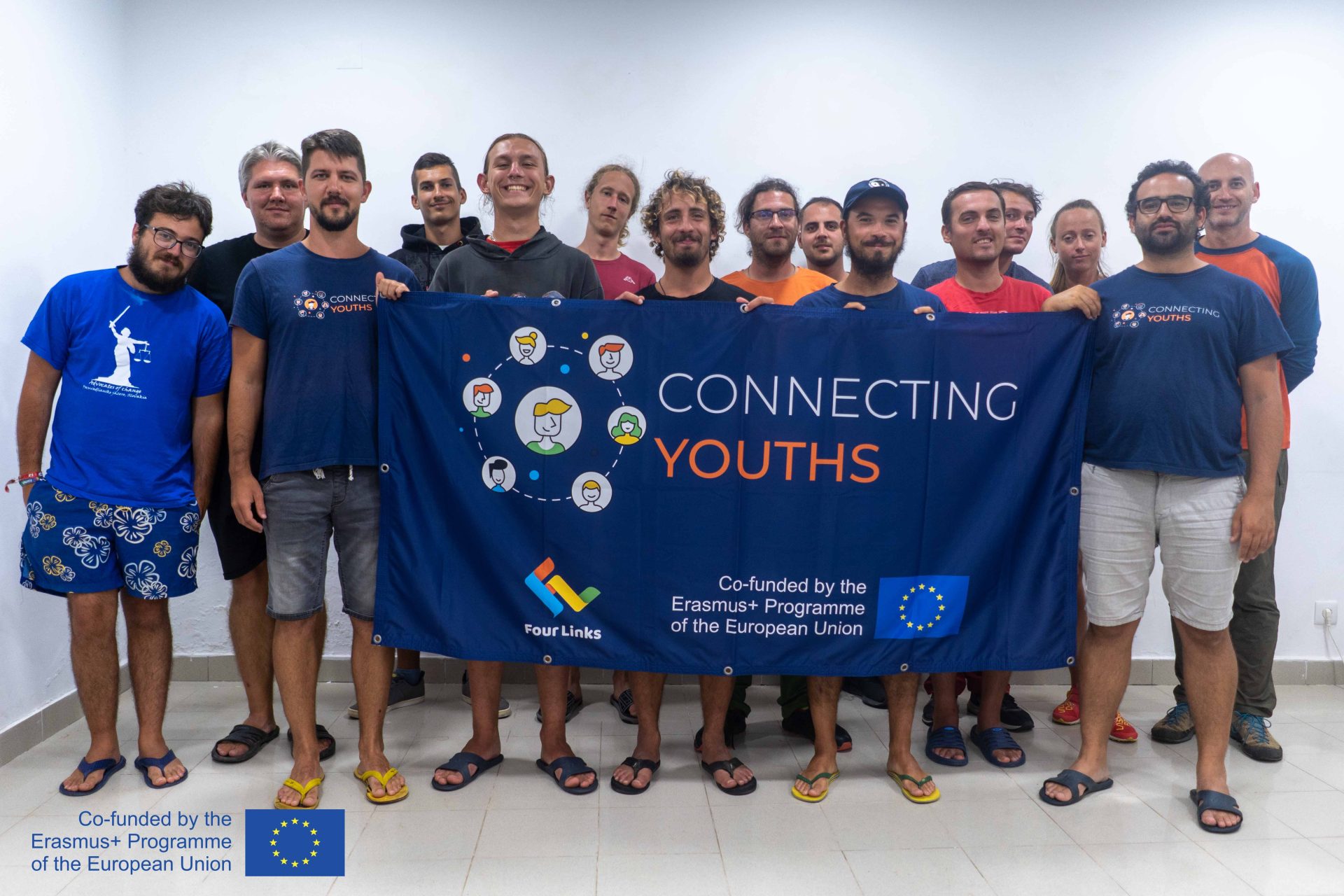
Blended Mobility | slovakia
The third and final learning mobility of our project, a blended mobility of young people was held in Pocuvadlo, Slovakia and gathered young participants from minorities or having educational difficulties in/from rural areas.
It was in May 2021, in a beautiful spring Pocuvadlo. We started the activity with some teambuilding activities. Being that the weather was so good, we did most of it outdoors, with the help of the great animators of Outdoor Institute SK, who showed us some good methods we can use to take advantage of outdoor surroundings.
For the next few days we focused in understanding what being a participant with fewer opportunity means, what are the fewer opportunities the participants are facing and how much do those conditions sabotage the involvement in their communities. We discussed what can be the role of non-formal and informal education, its methods and results/benefits it brings in terms of intercultural learning, active citizenship, sense of iniative and sense of belonging in the community, country and Europe.
Participants learned how they can use Erasmus+ projects to tackle issues in their community, how to structure their ideas and developed critical thinking when they build a proper project planning, as well as in its implementation. A marvelous group that built up its confidence in fostering change and youth envolvement in their communities, and is now prepared to start organizing more activities and getting more involved in the community.
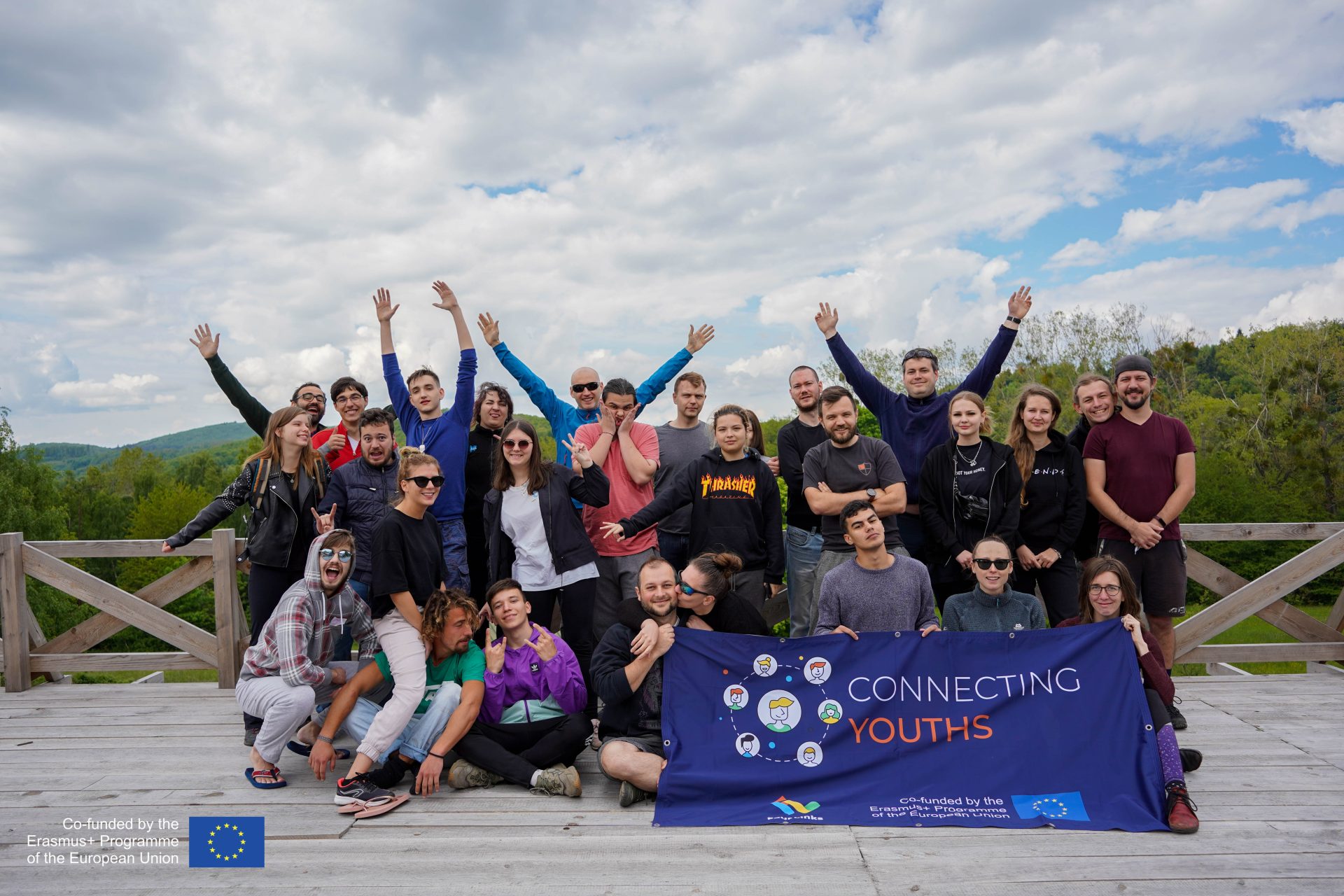
Results
This e-booklet gathers most of the methods used by our youth workers during the duration of our project in training and follow-up activities.
It aims to gather as many options as possible in different categories and to be a guide that other youth workers or young people, who aim to organize activities with youth, can consult.
Download the booklet here.

Funded by the European Union. Views and opinions expressed are however those of the author(s) only and do not necessarily reflect those of the European Union or Dům zahraniční spolupráce (DZS). Neither the European Union nor DZS can be held responsible for them.
